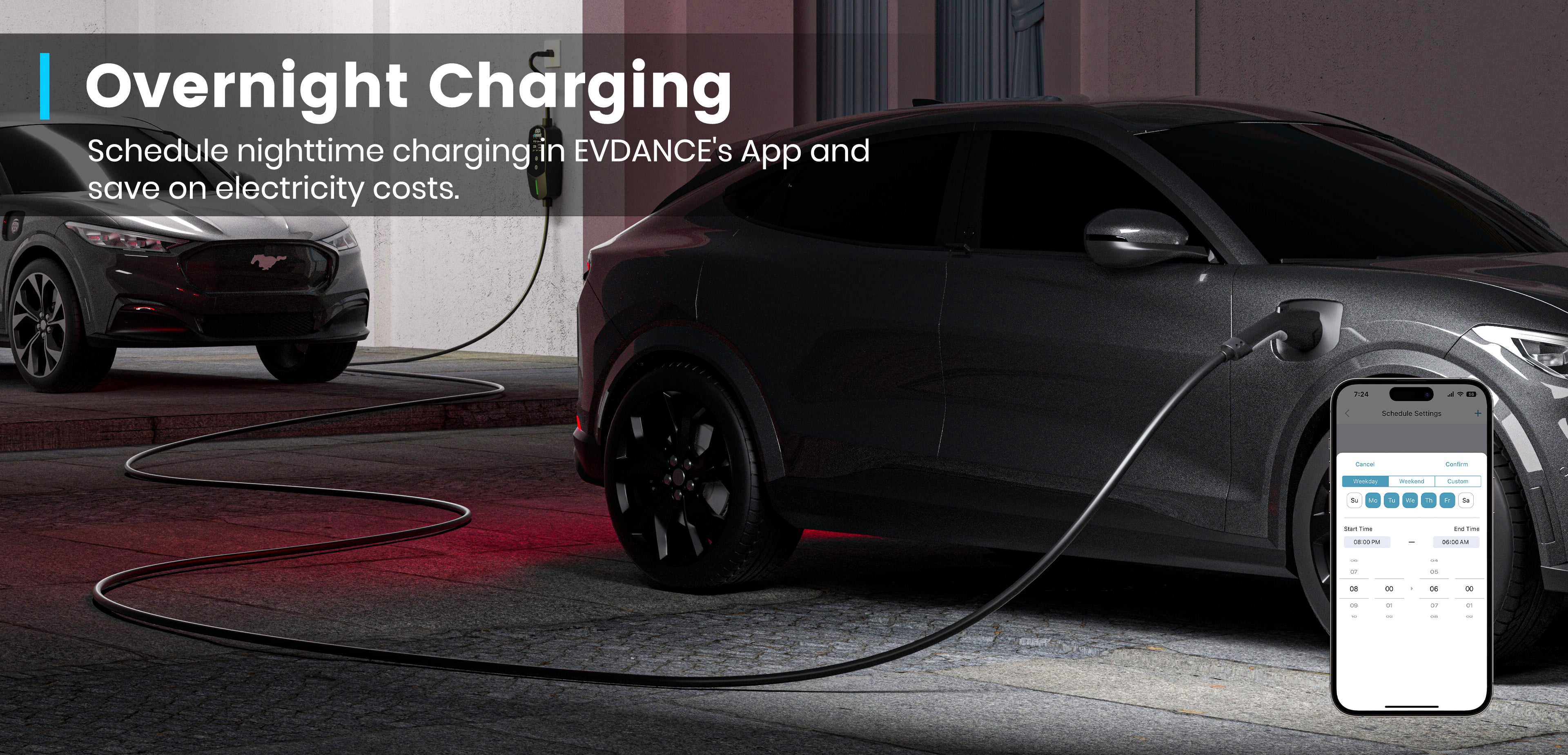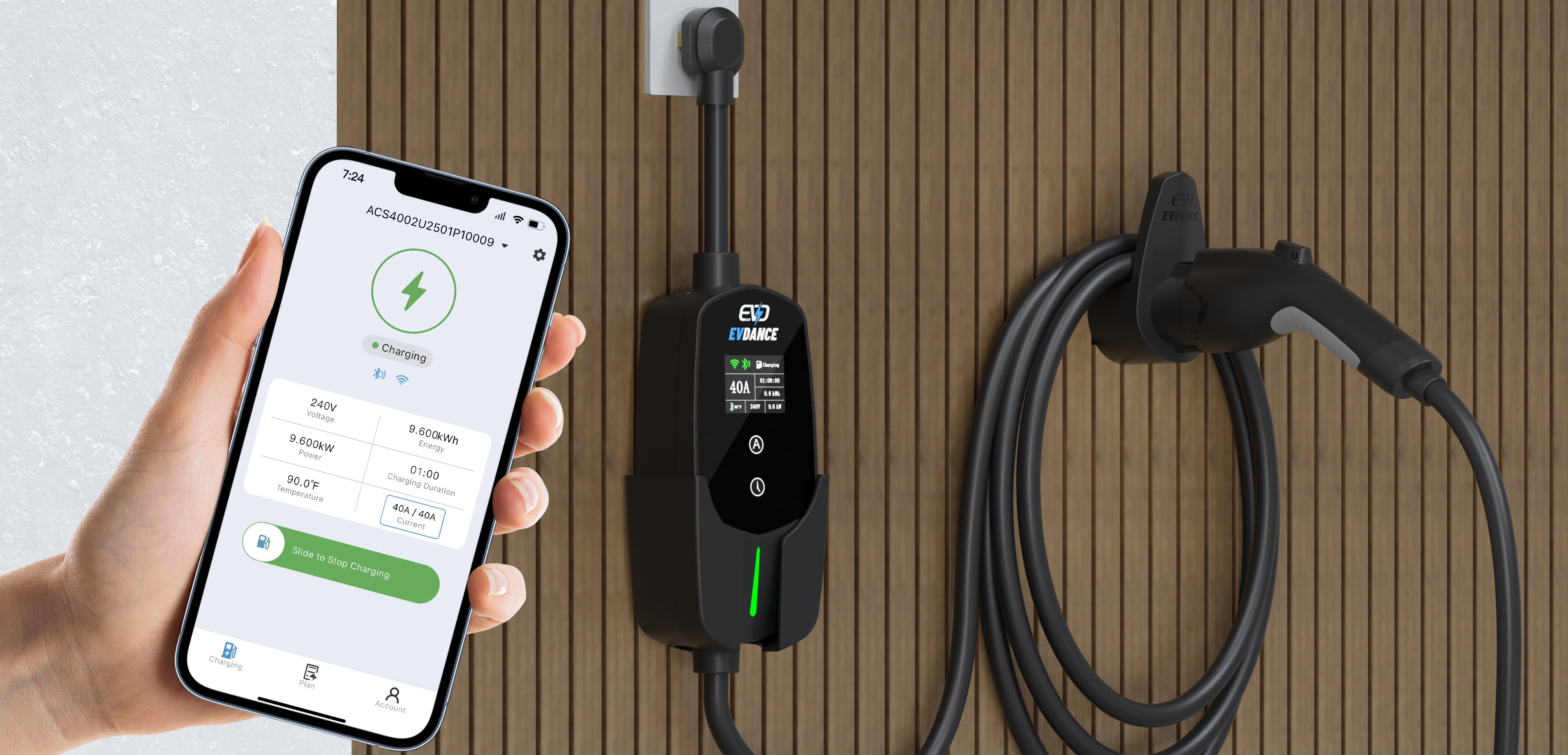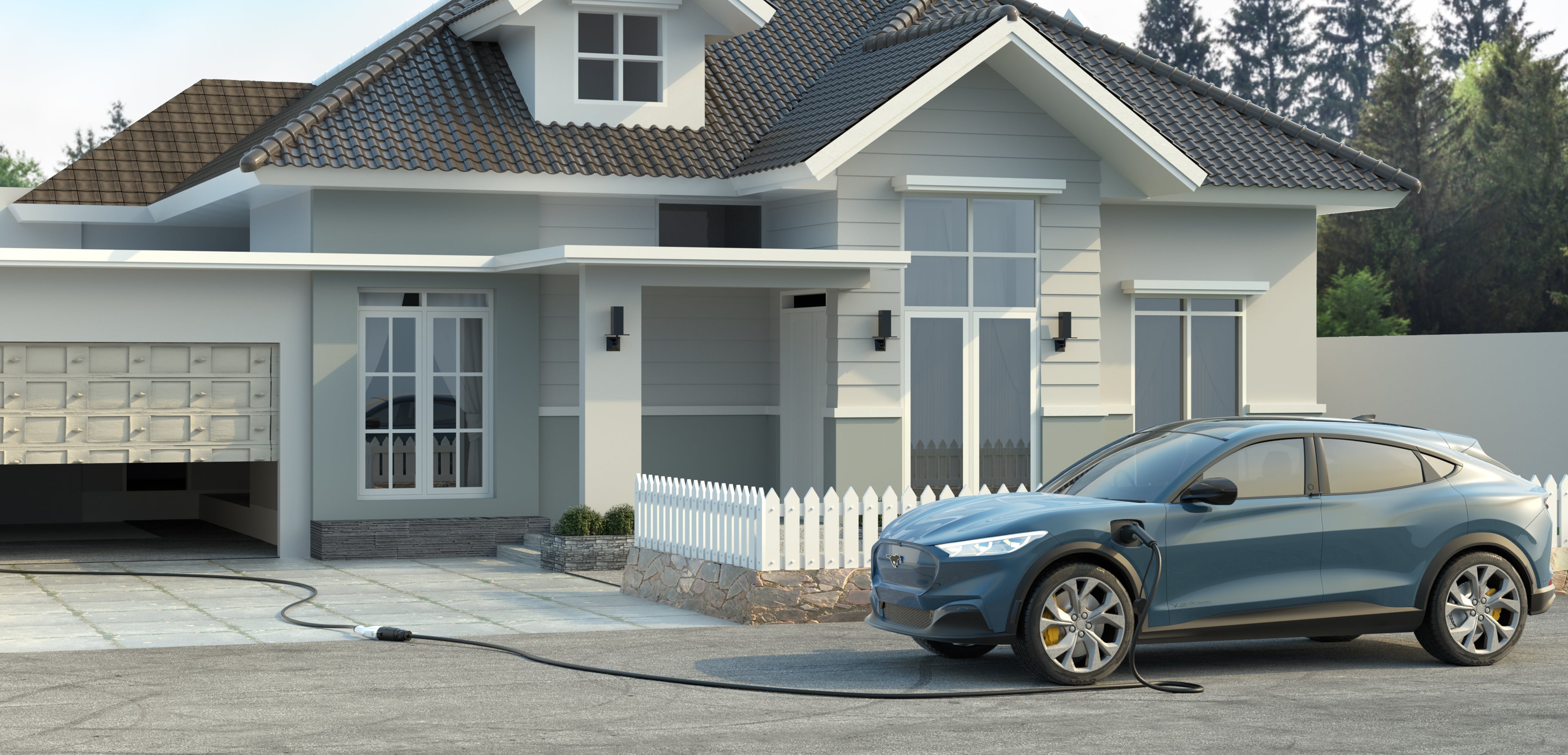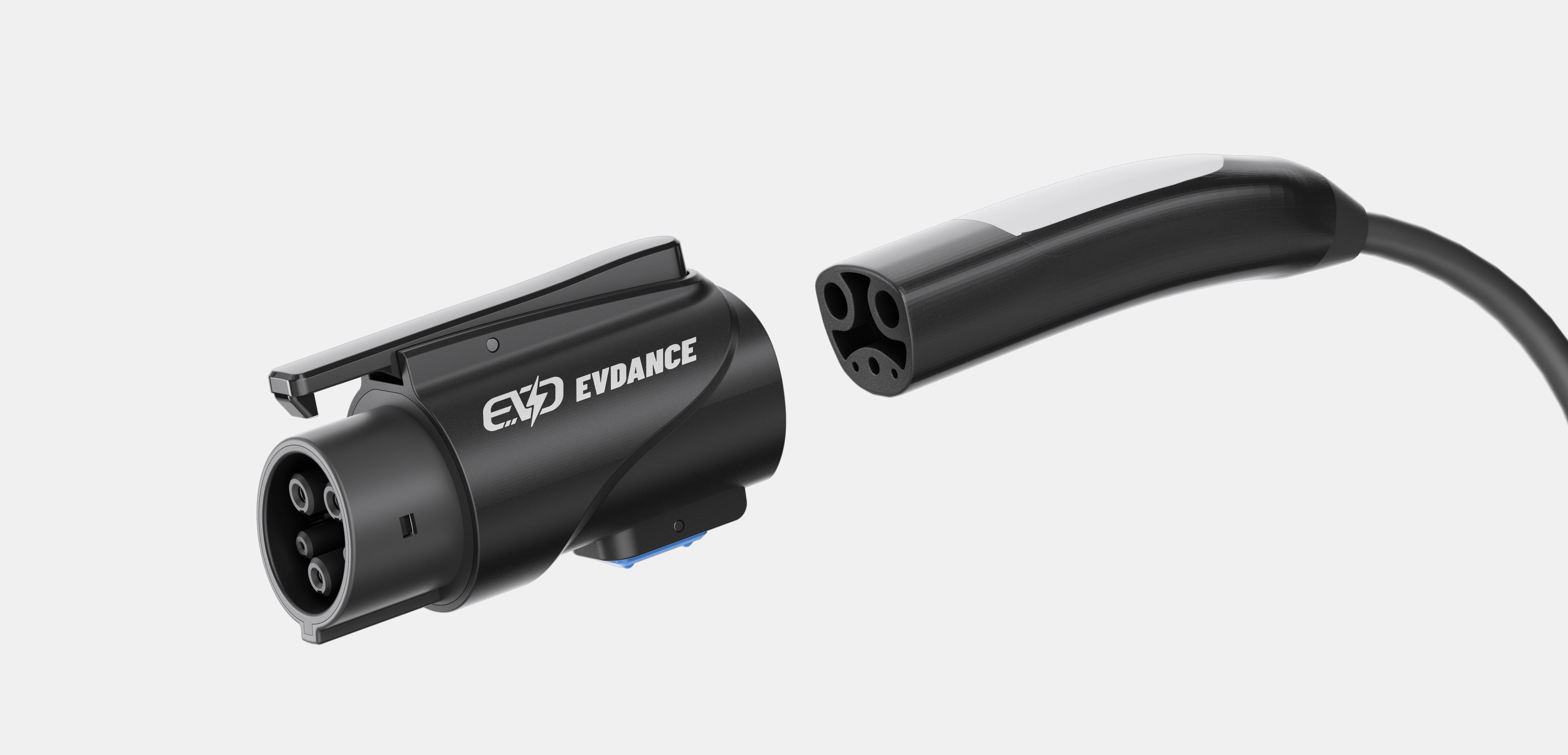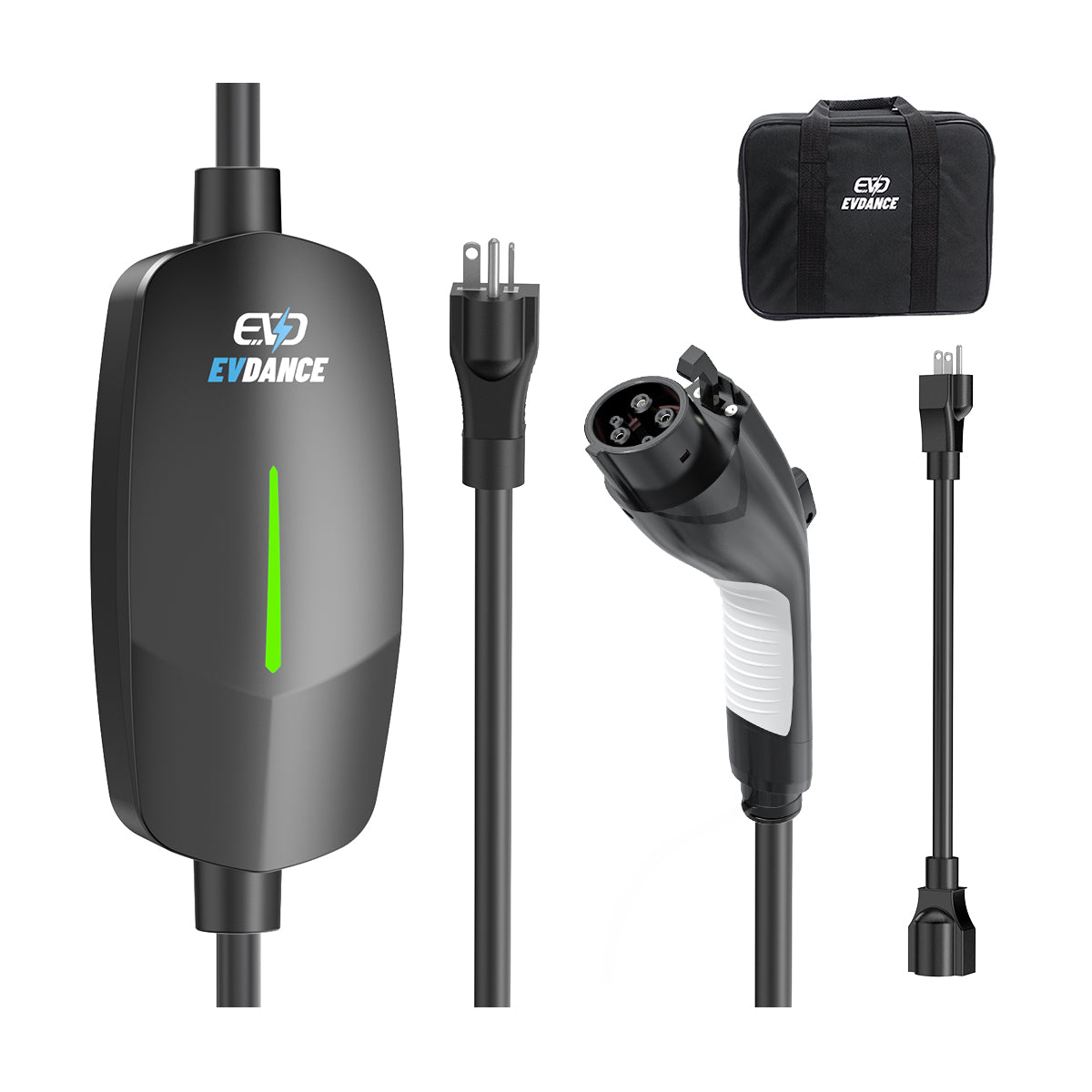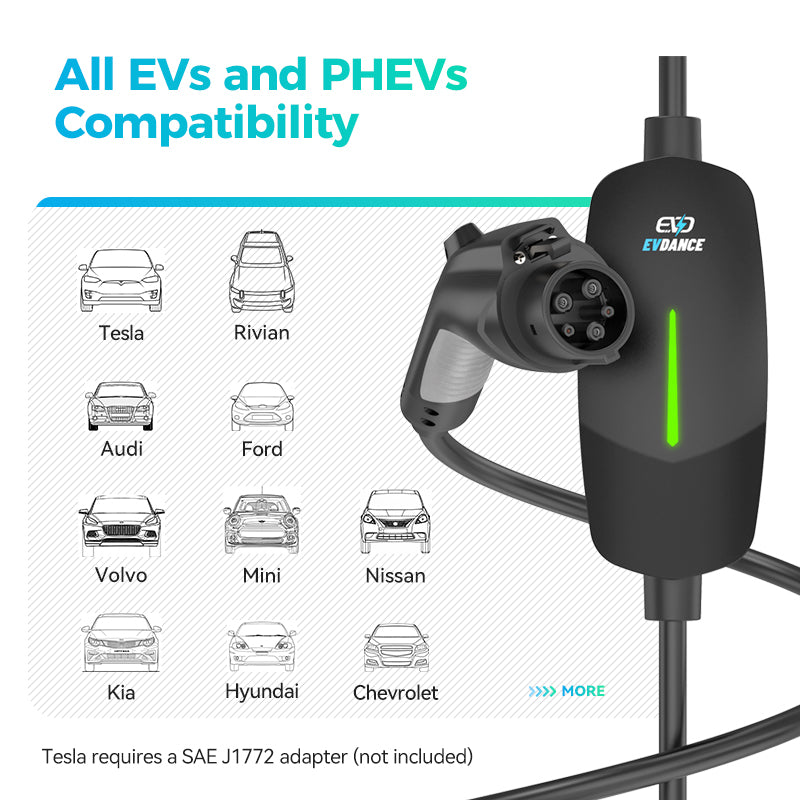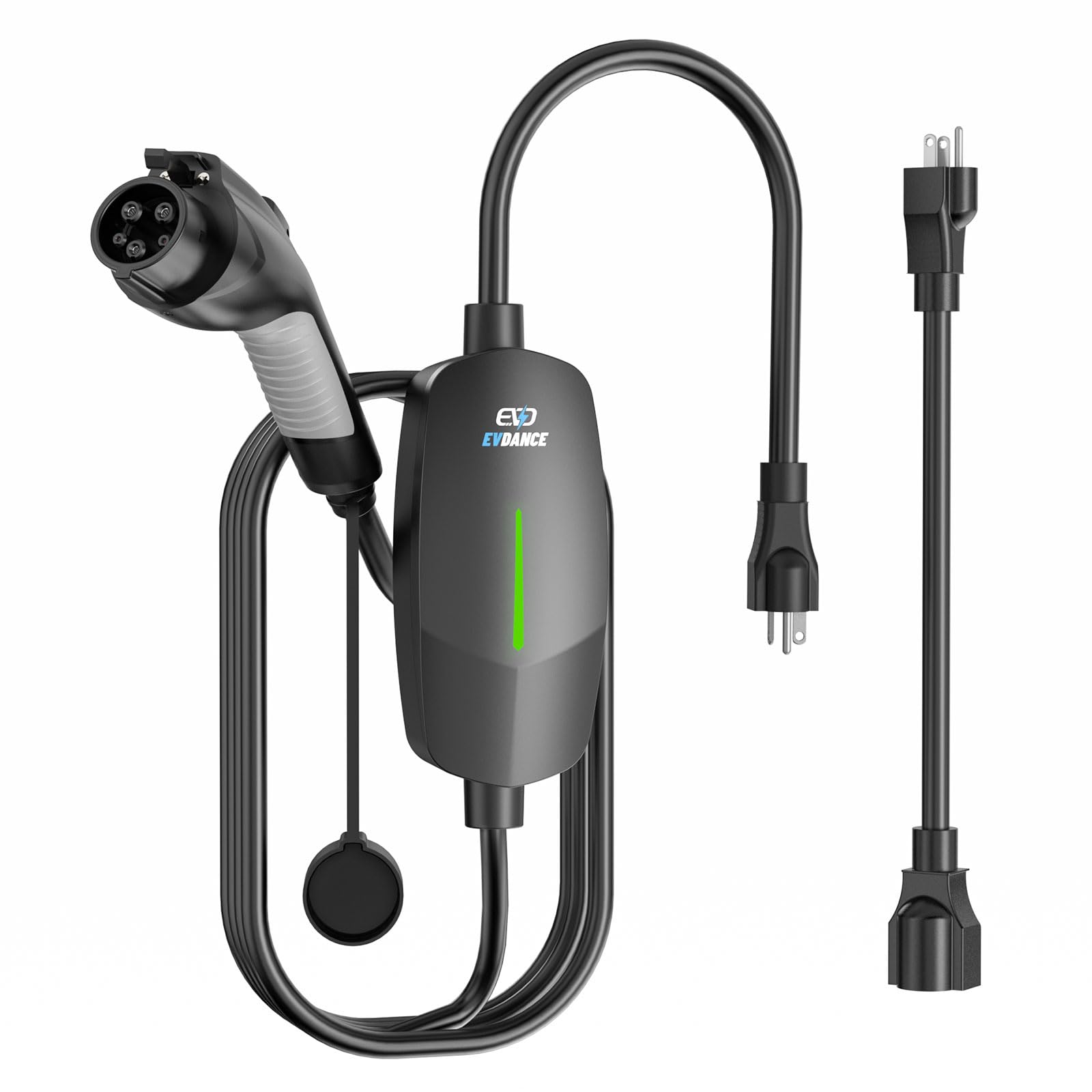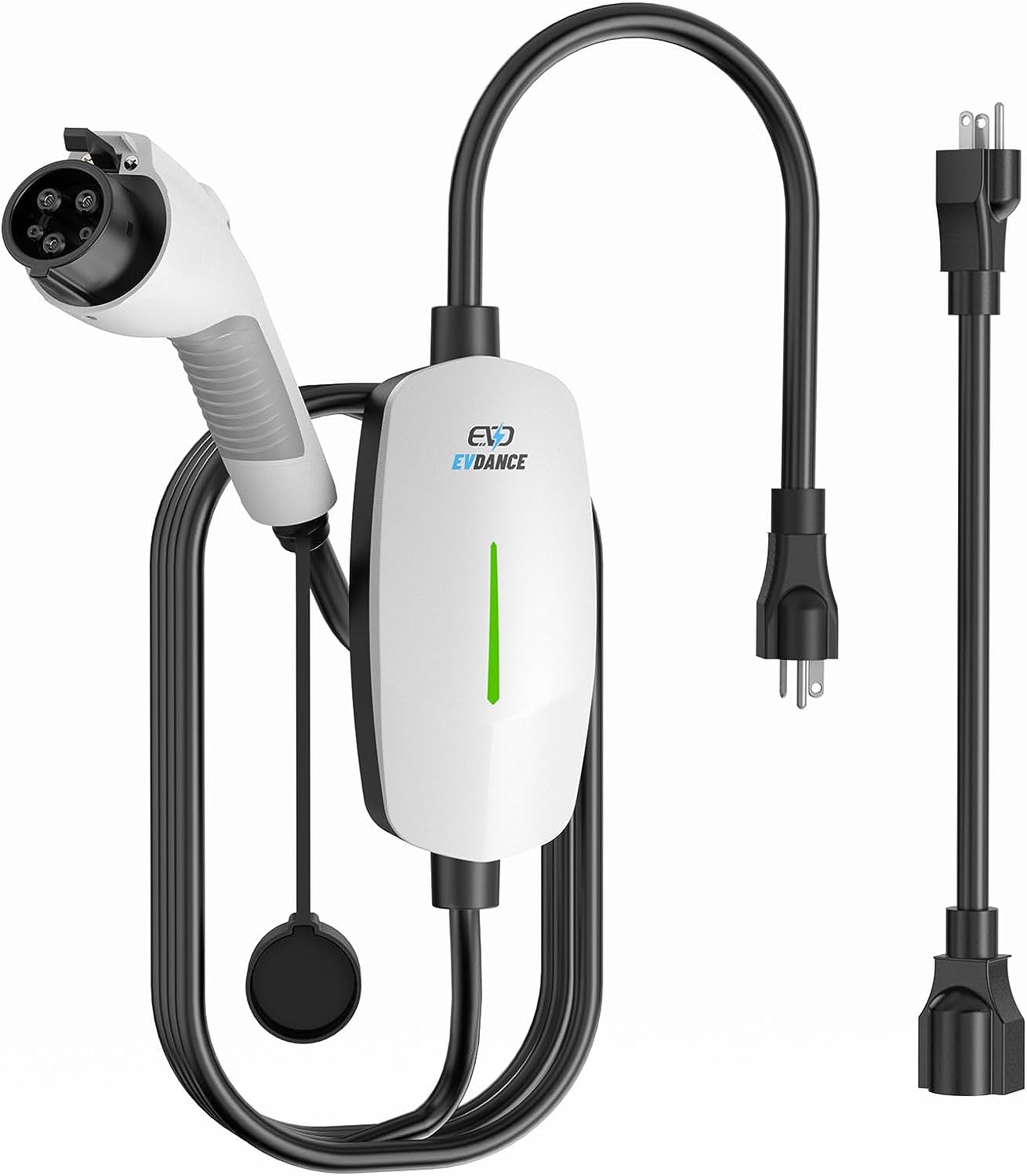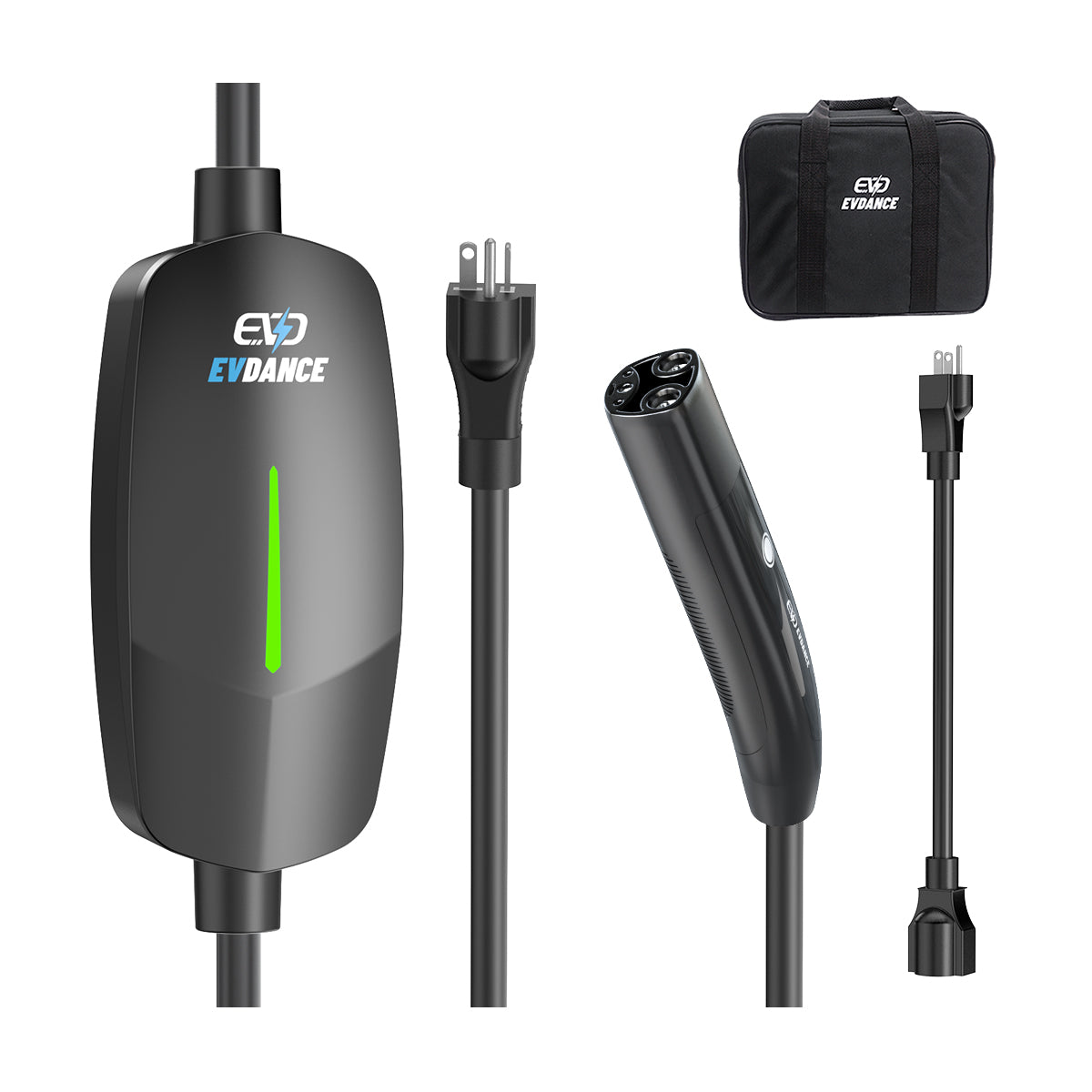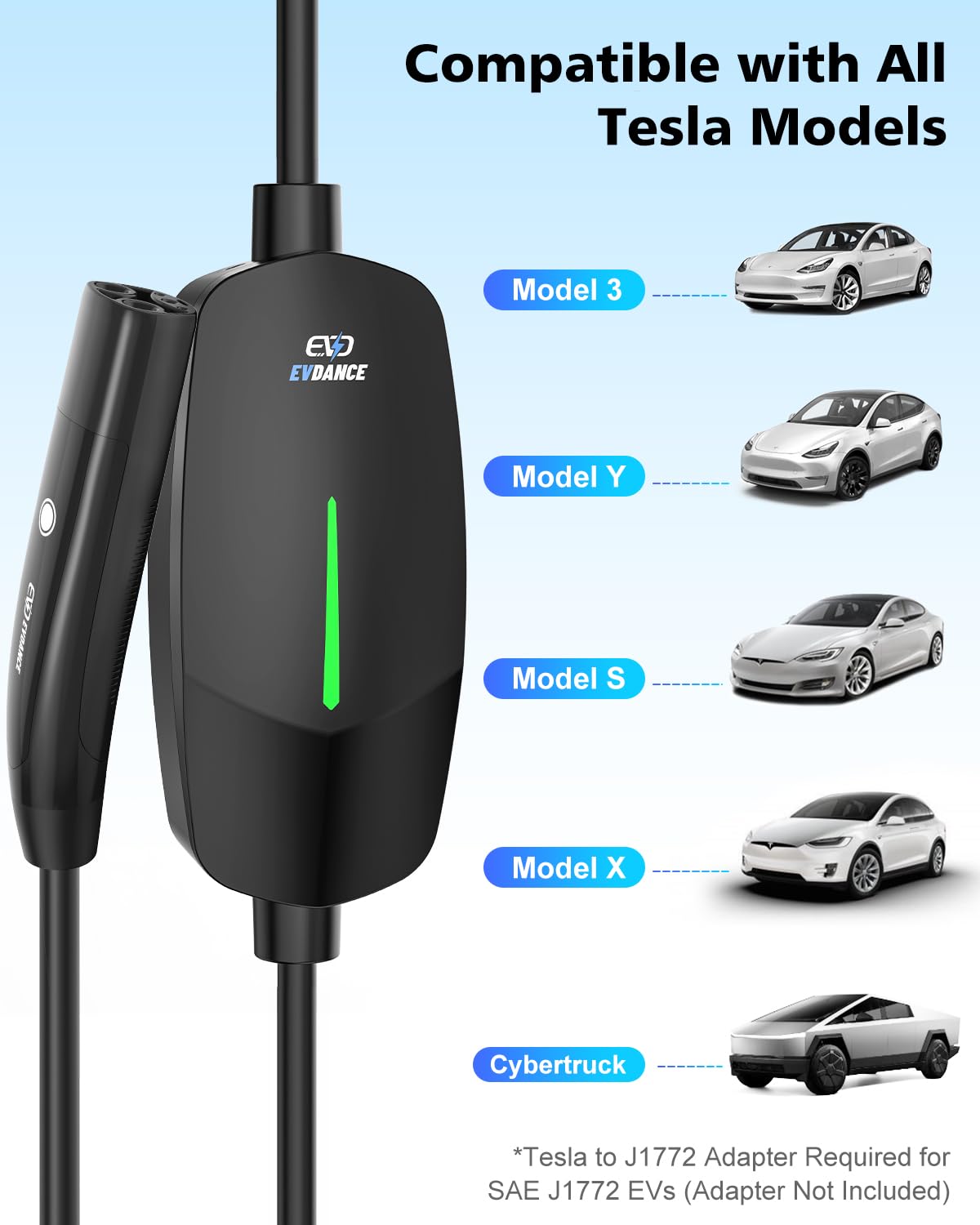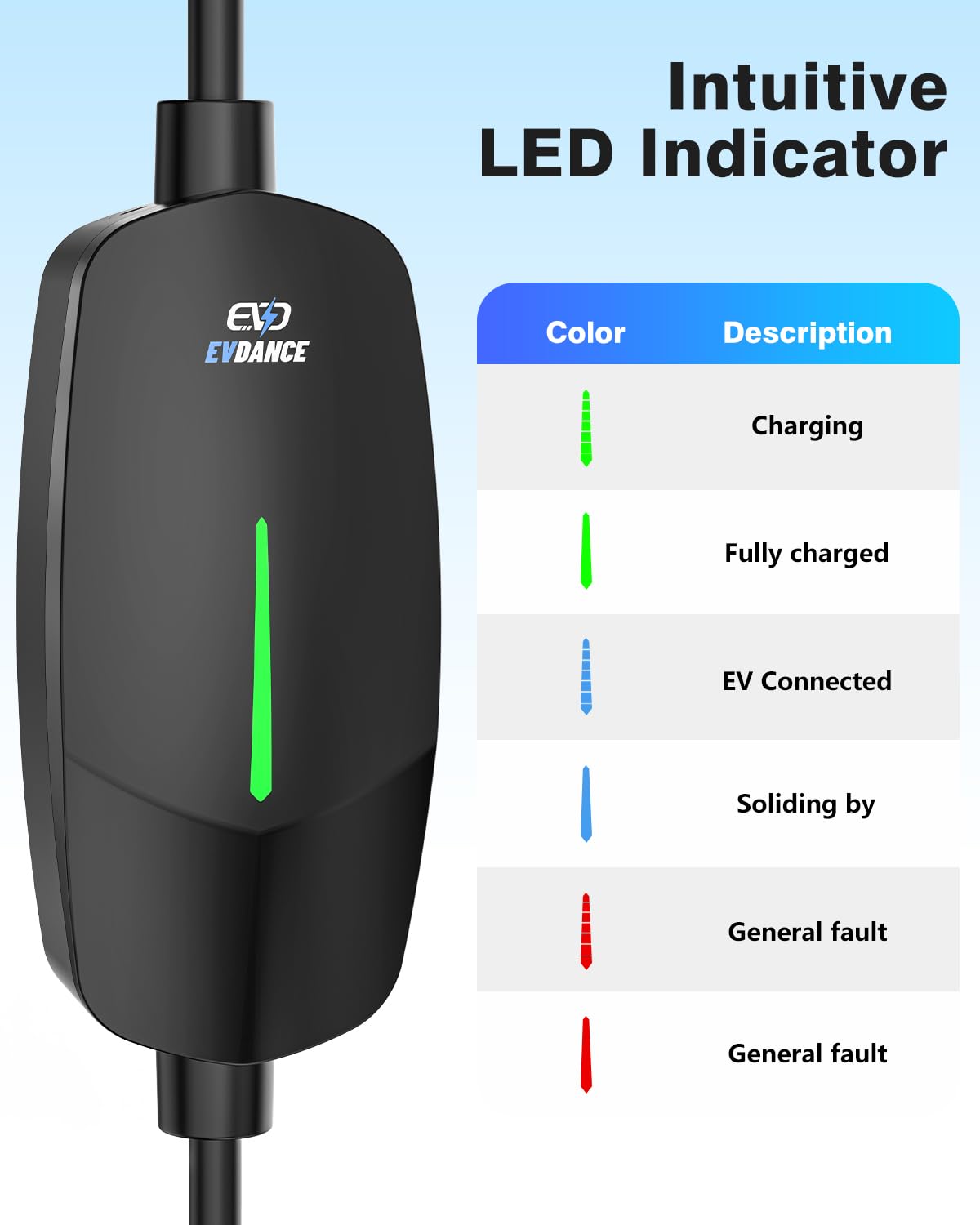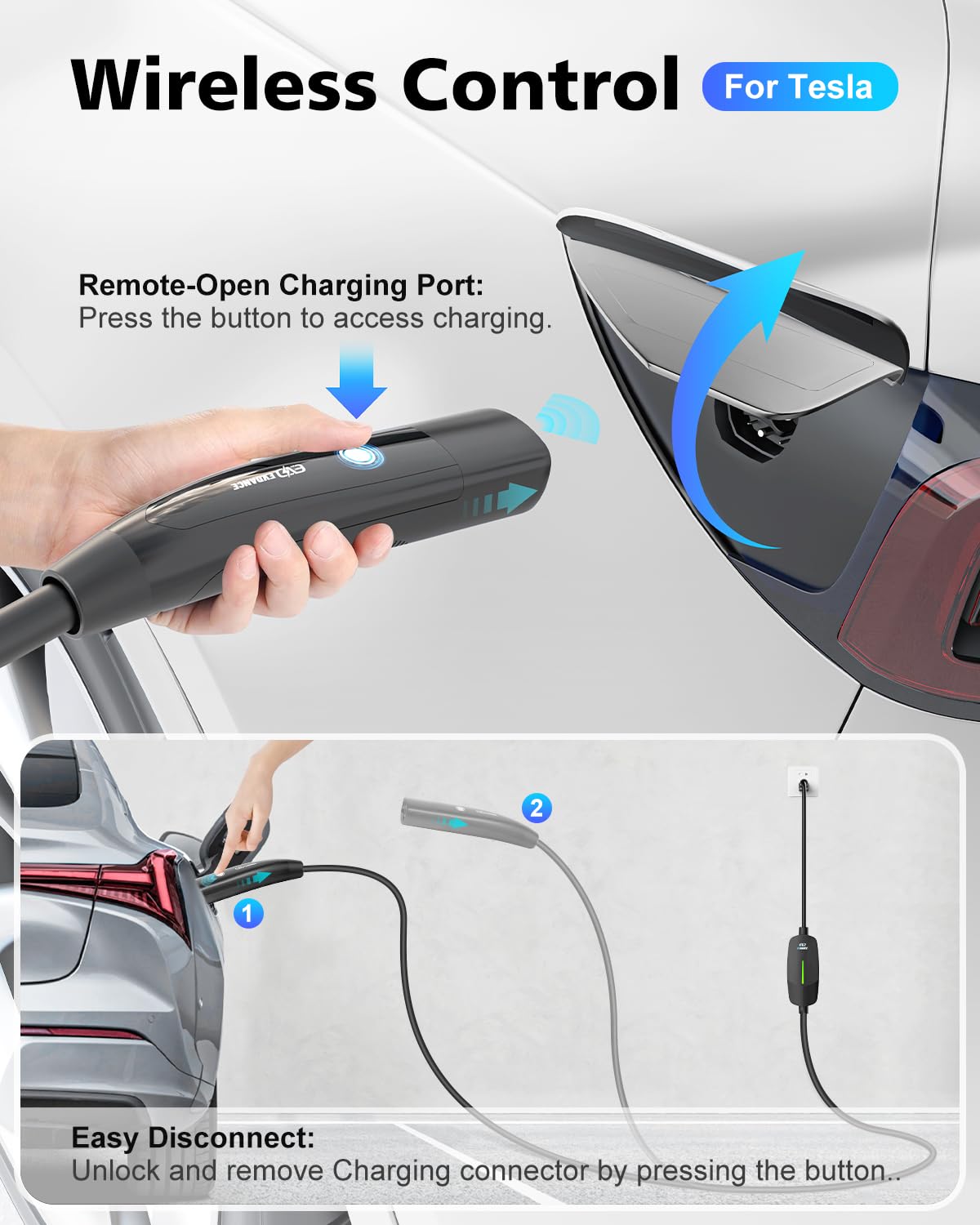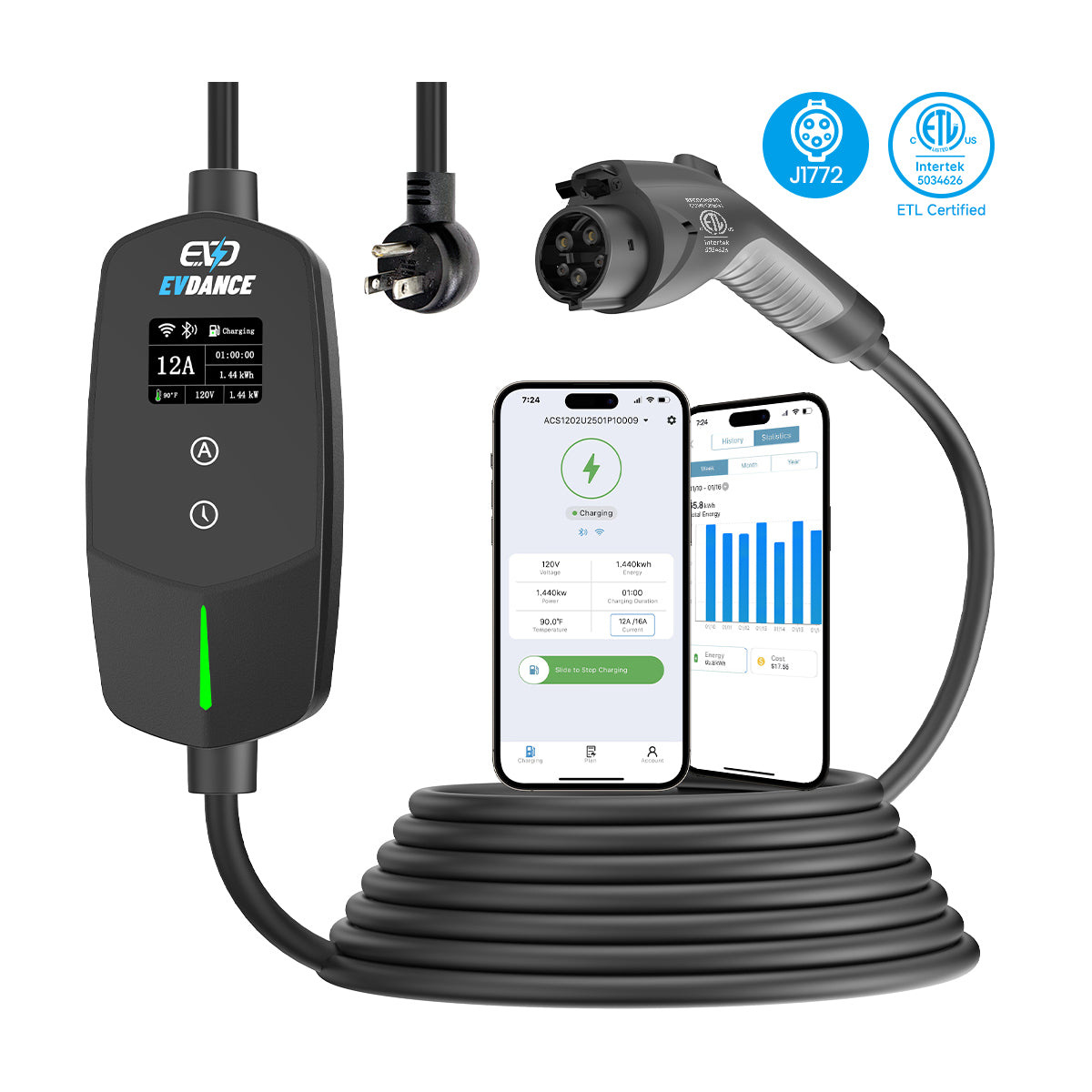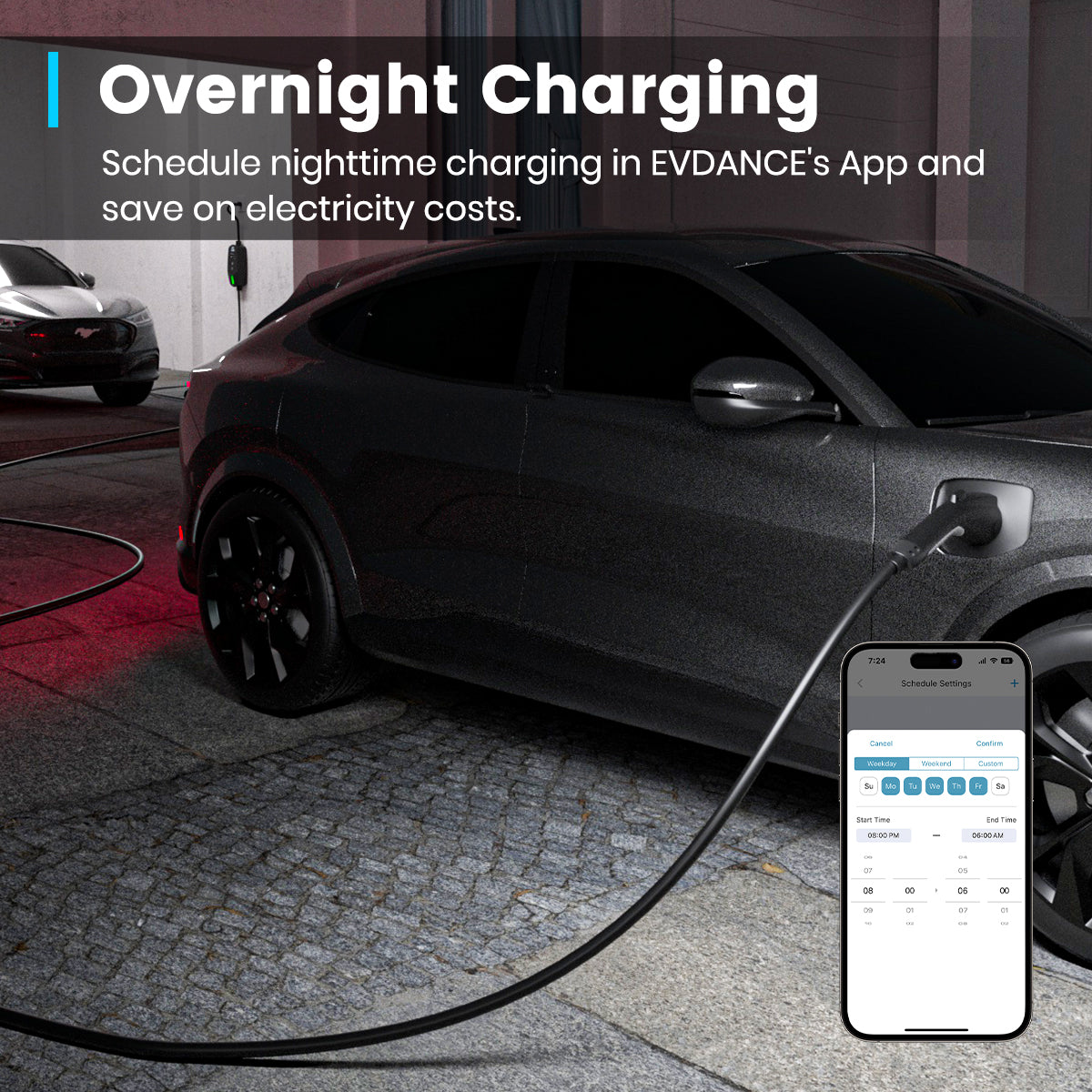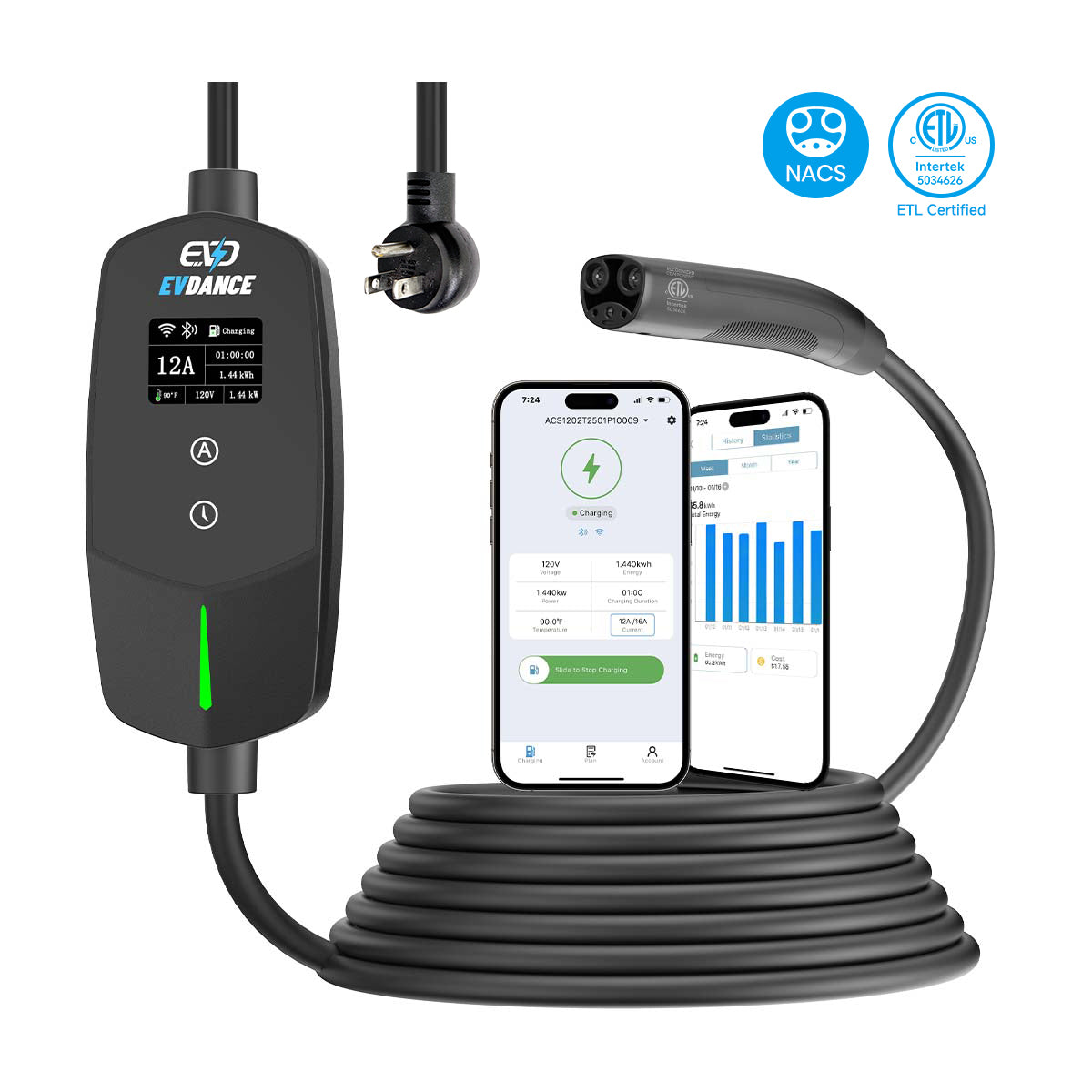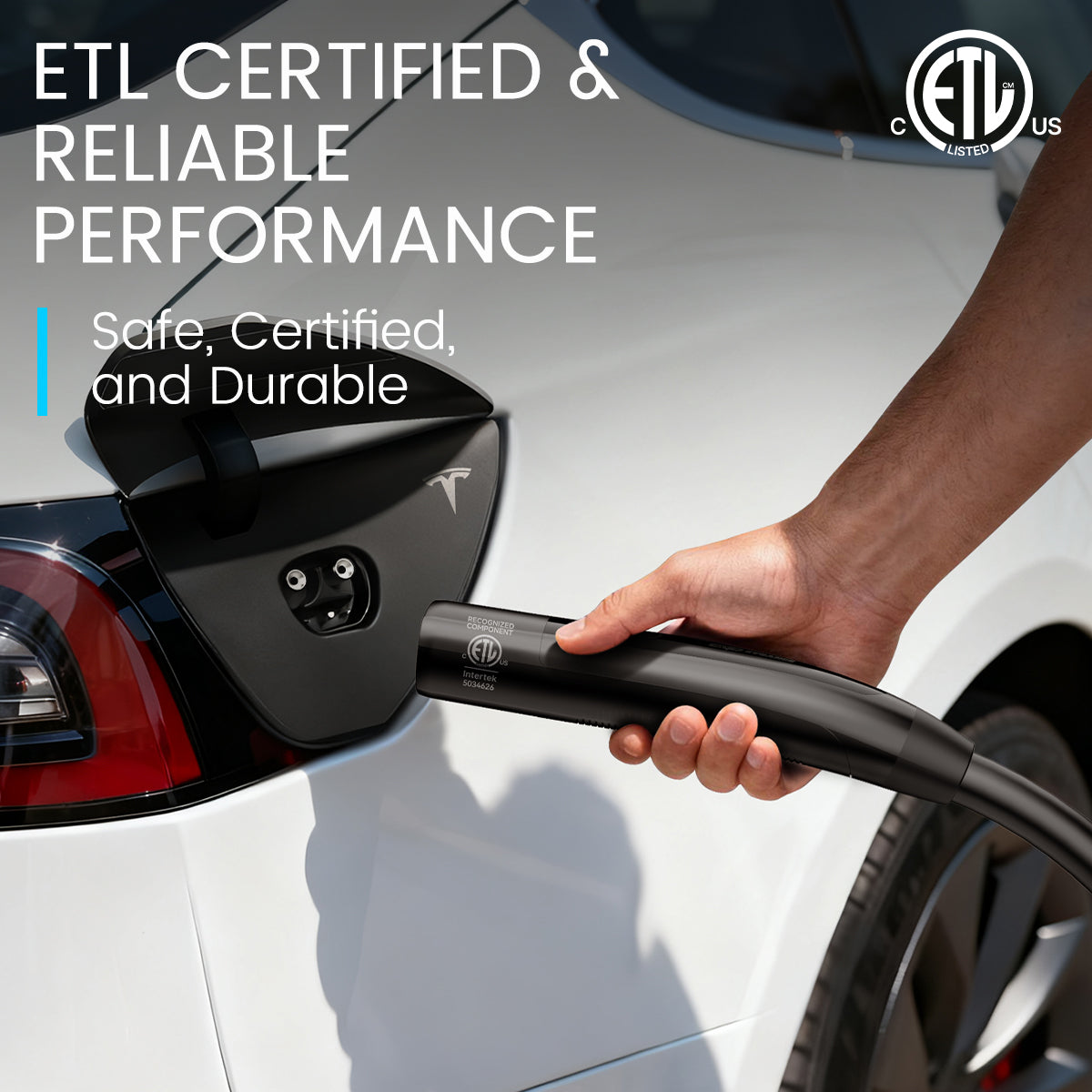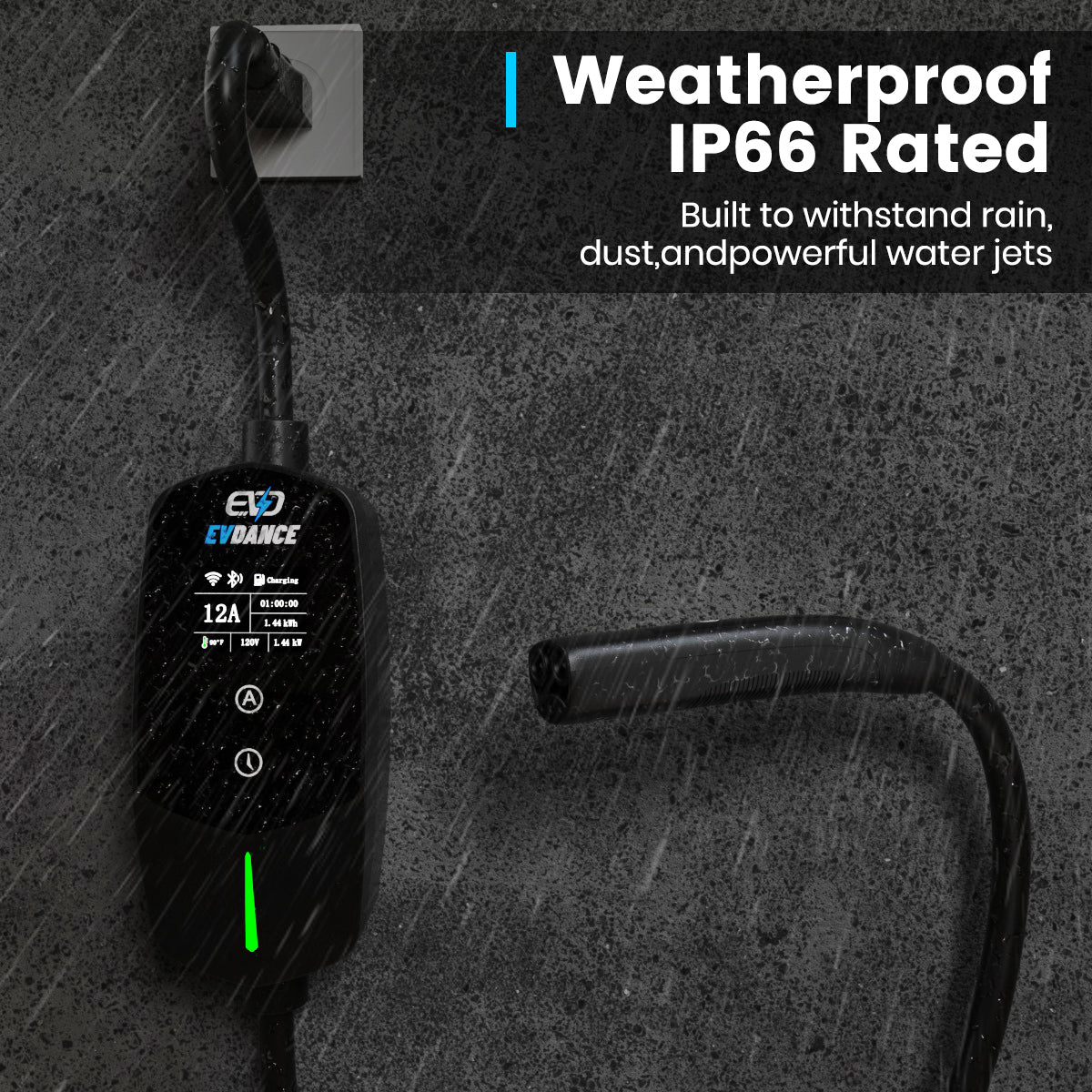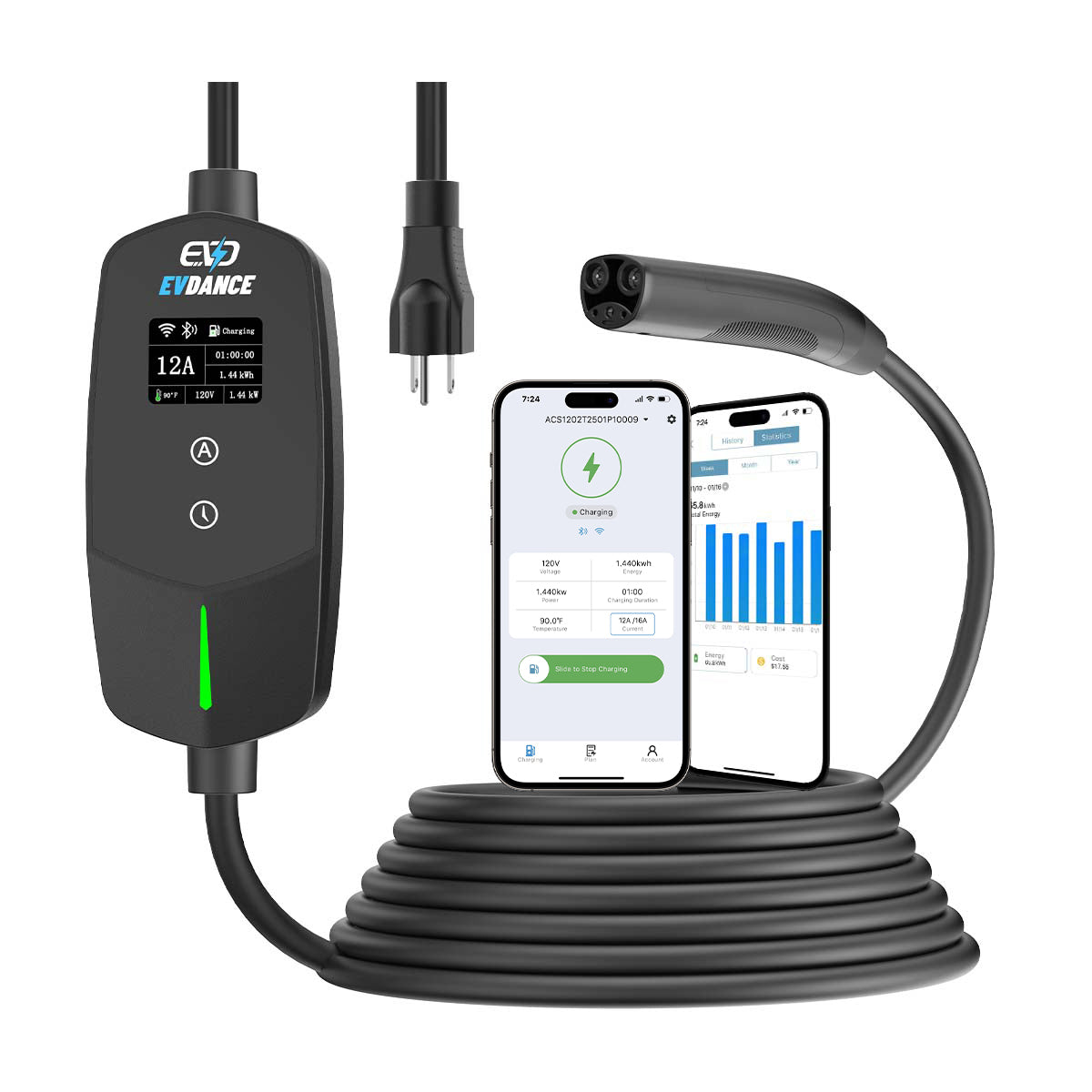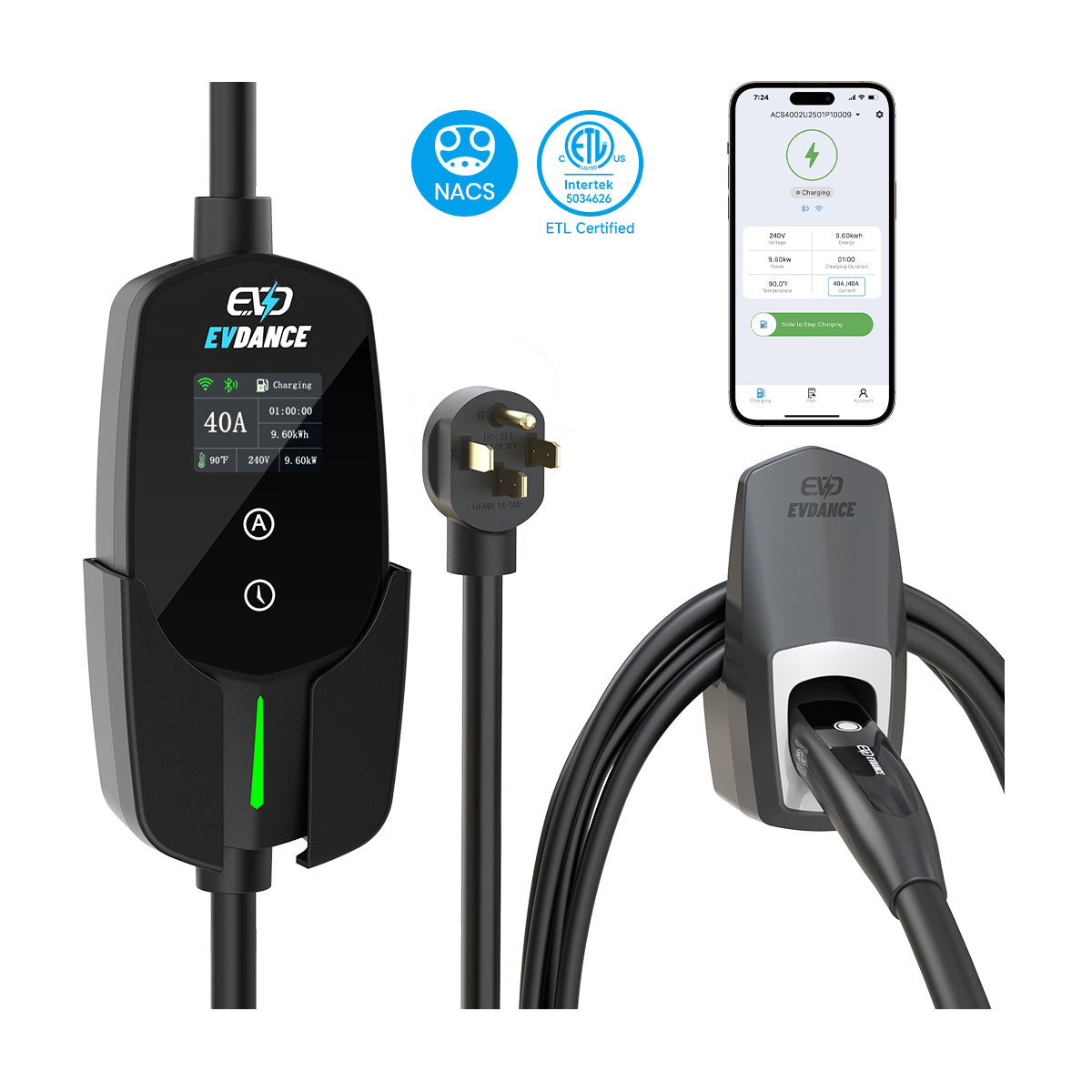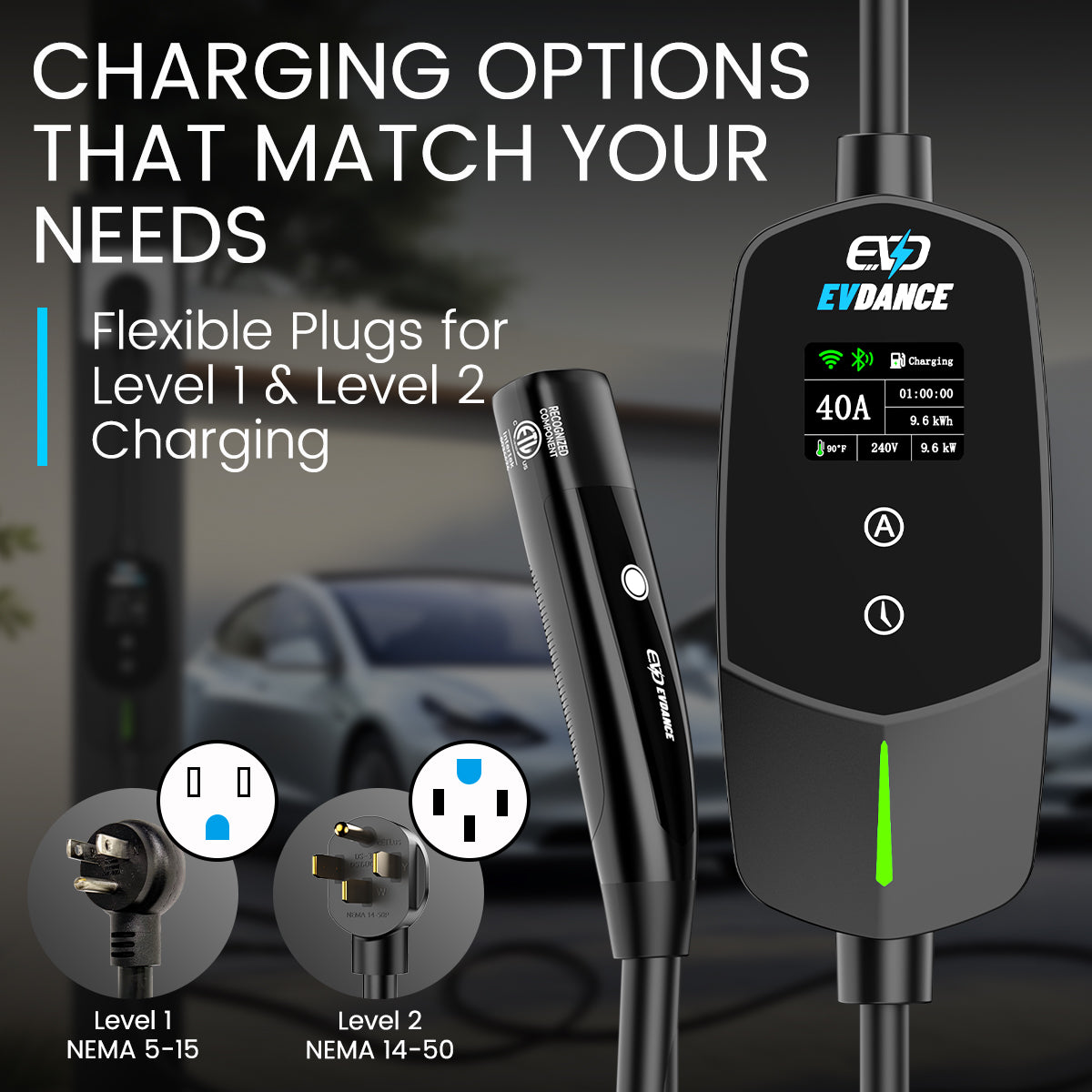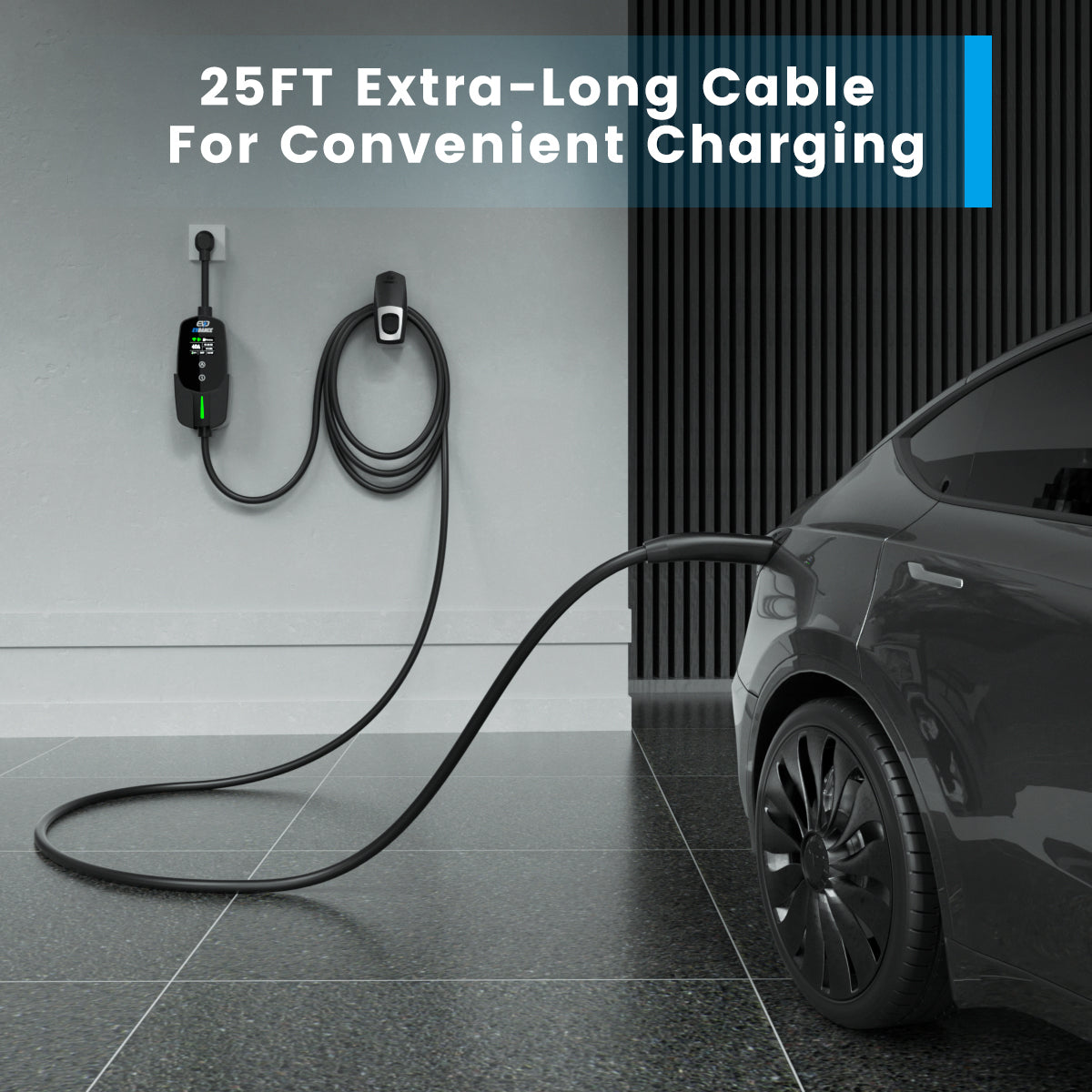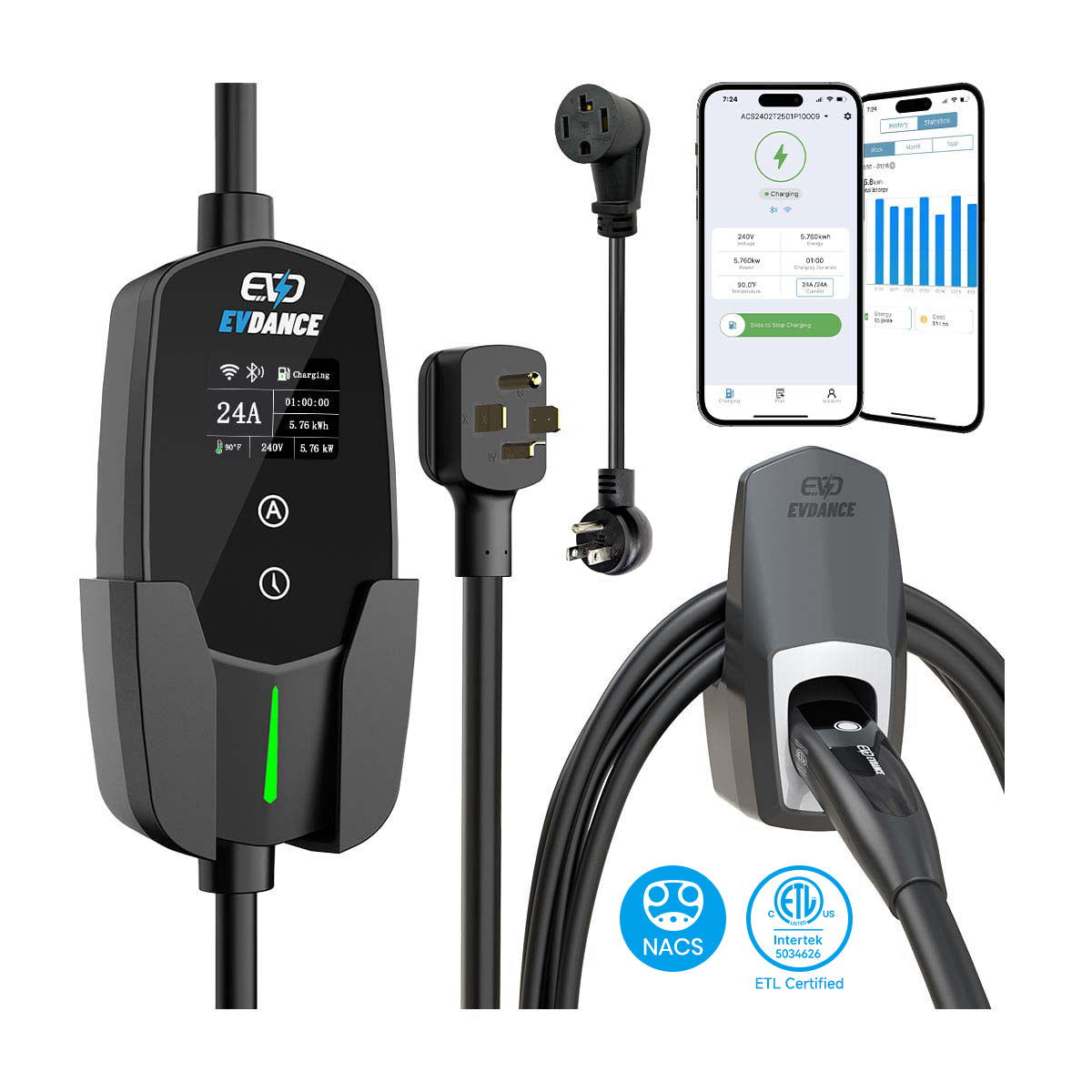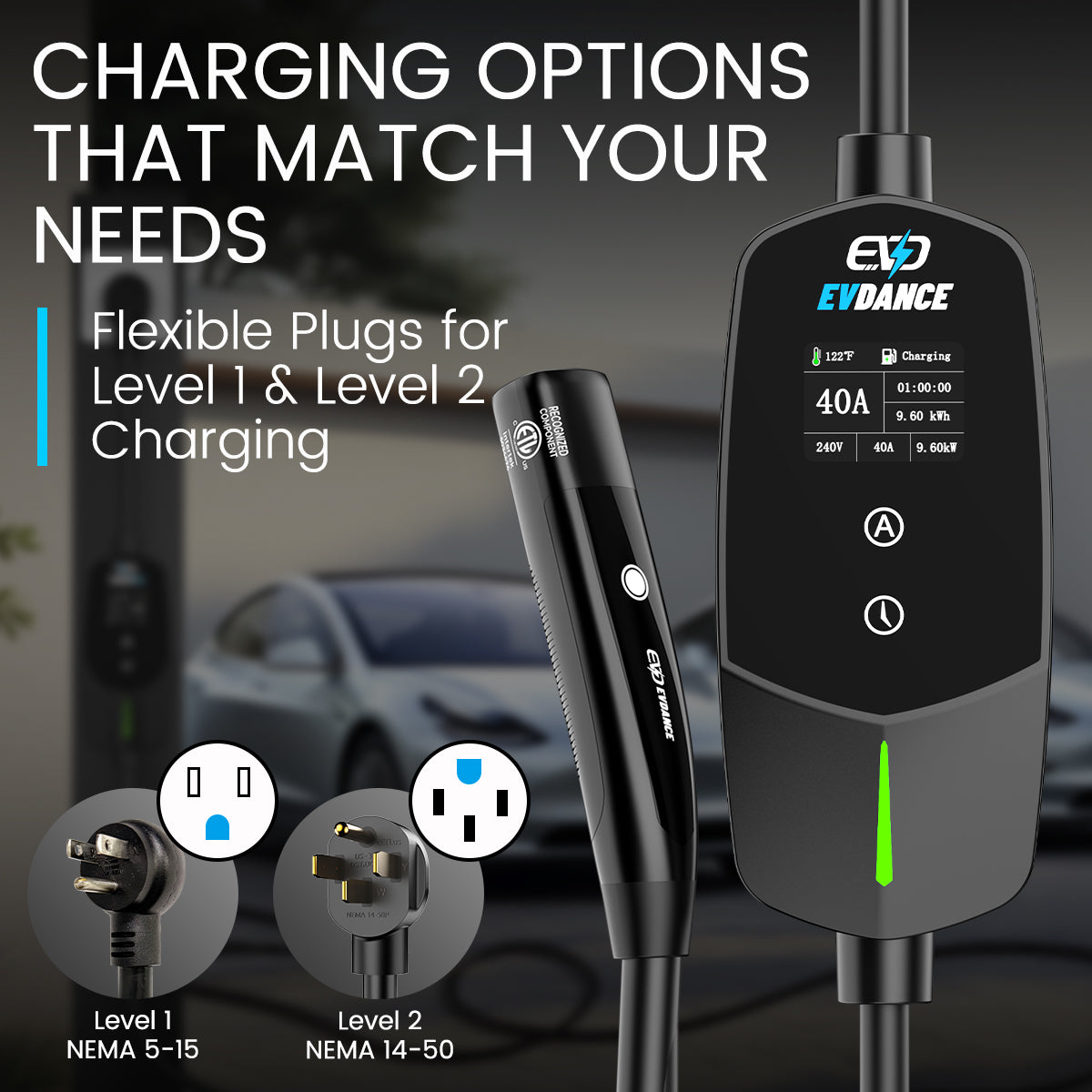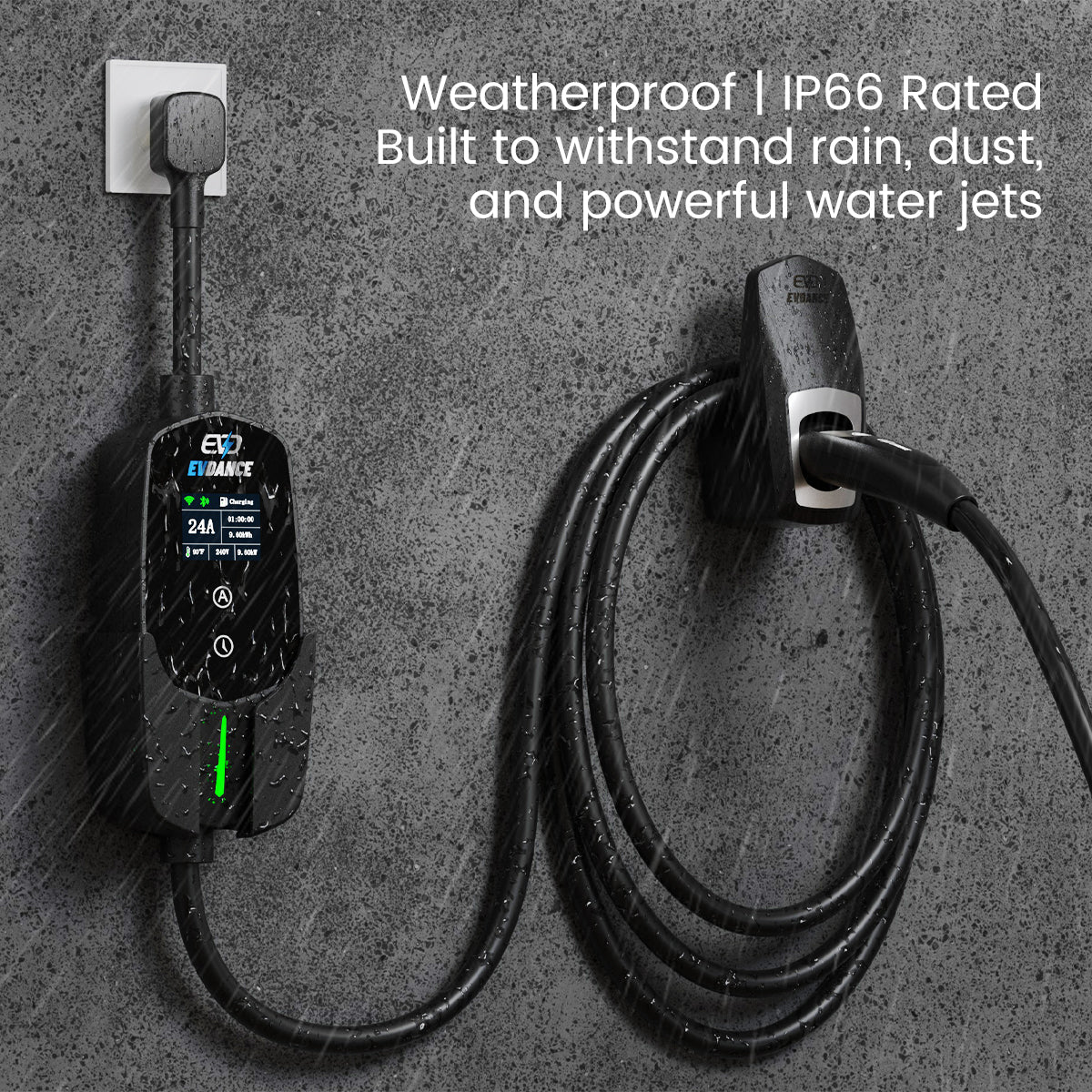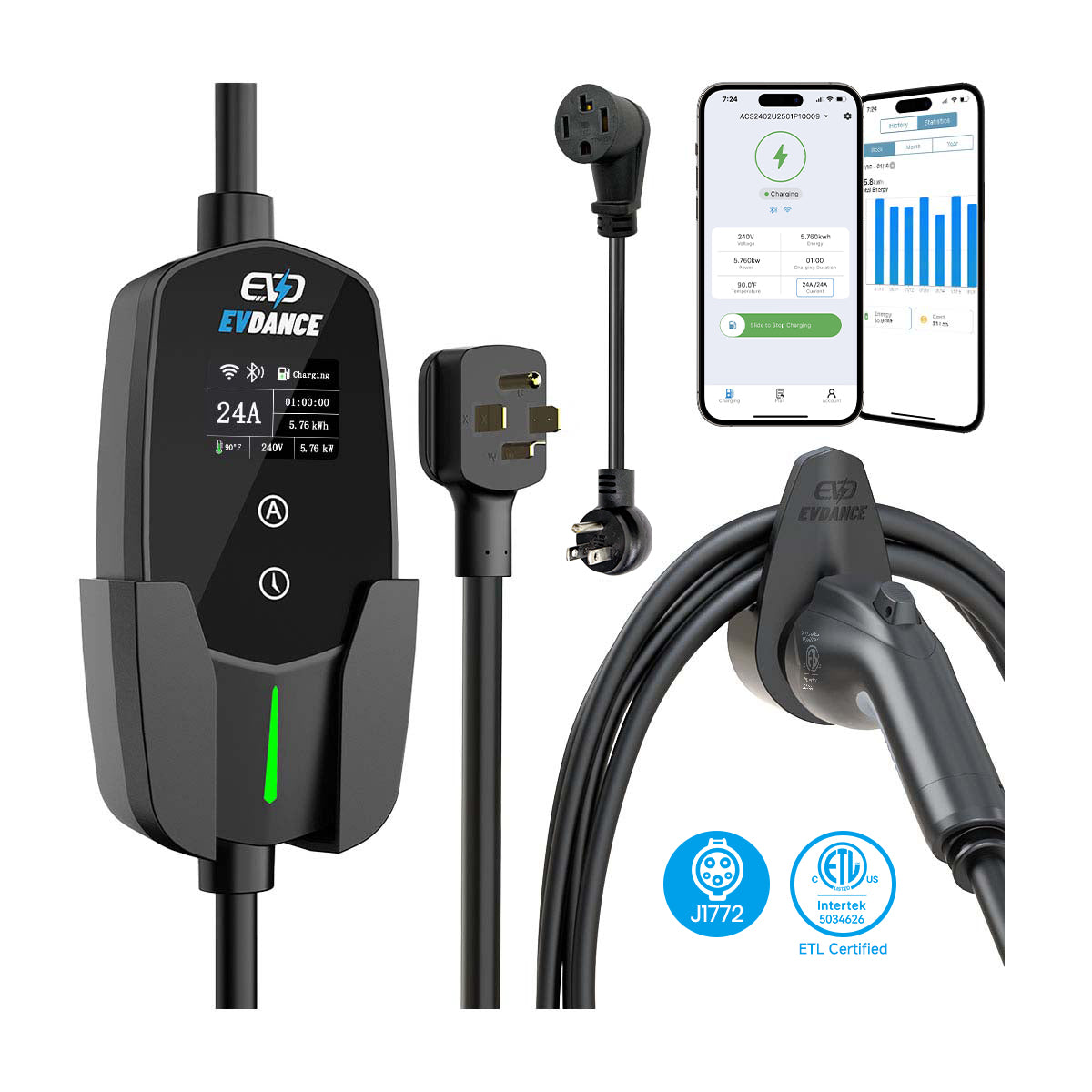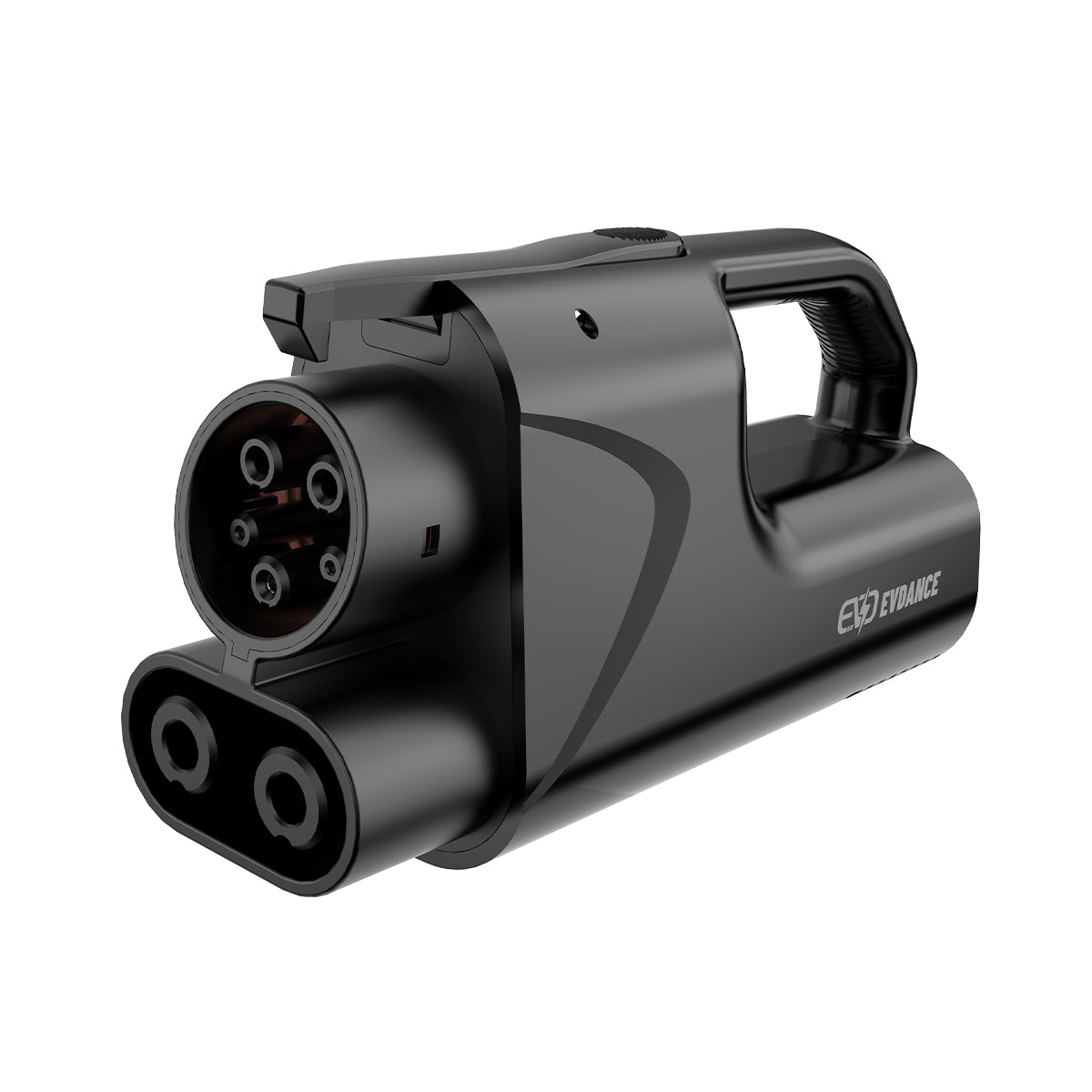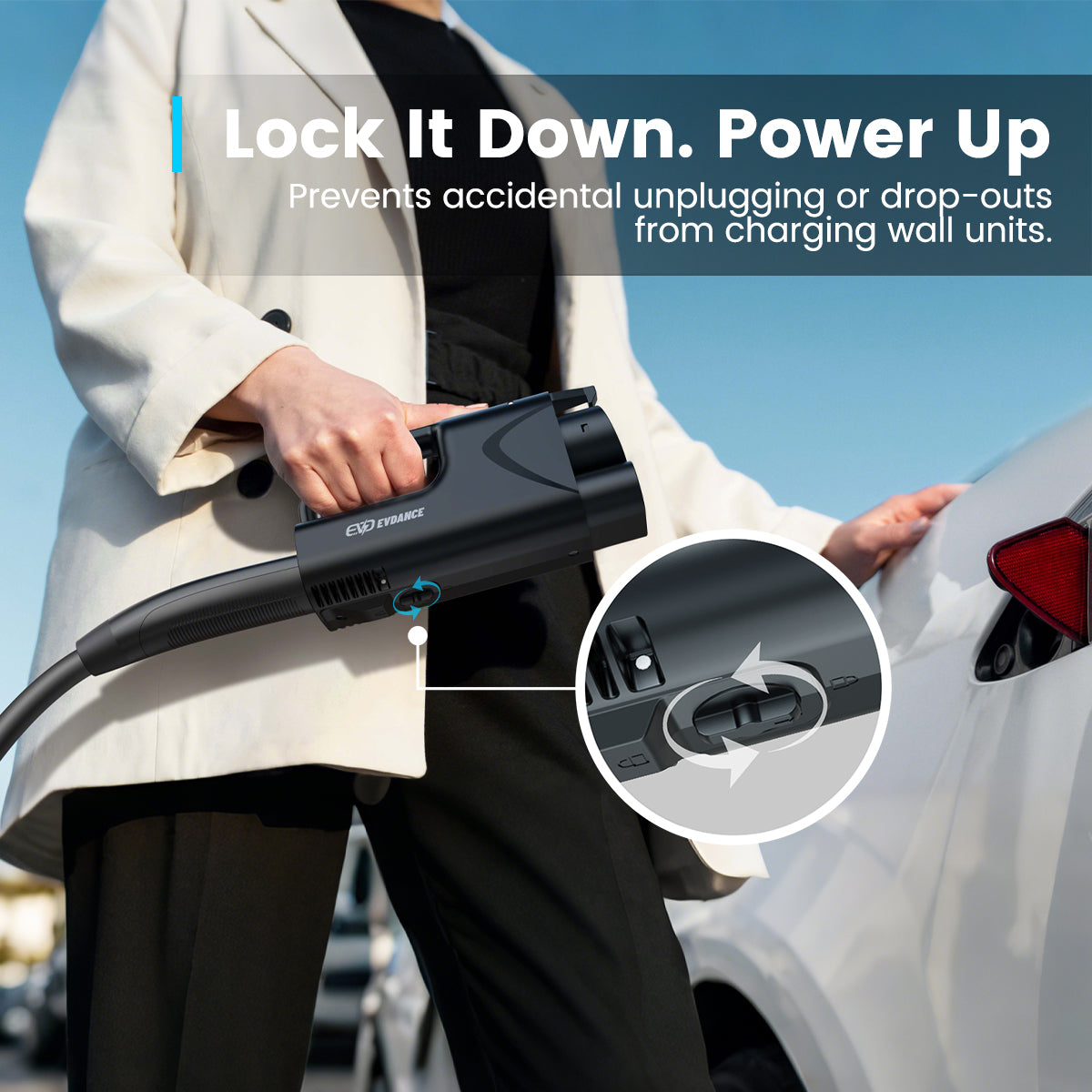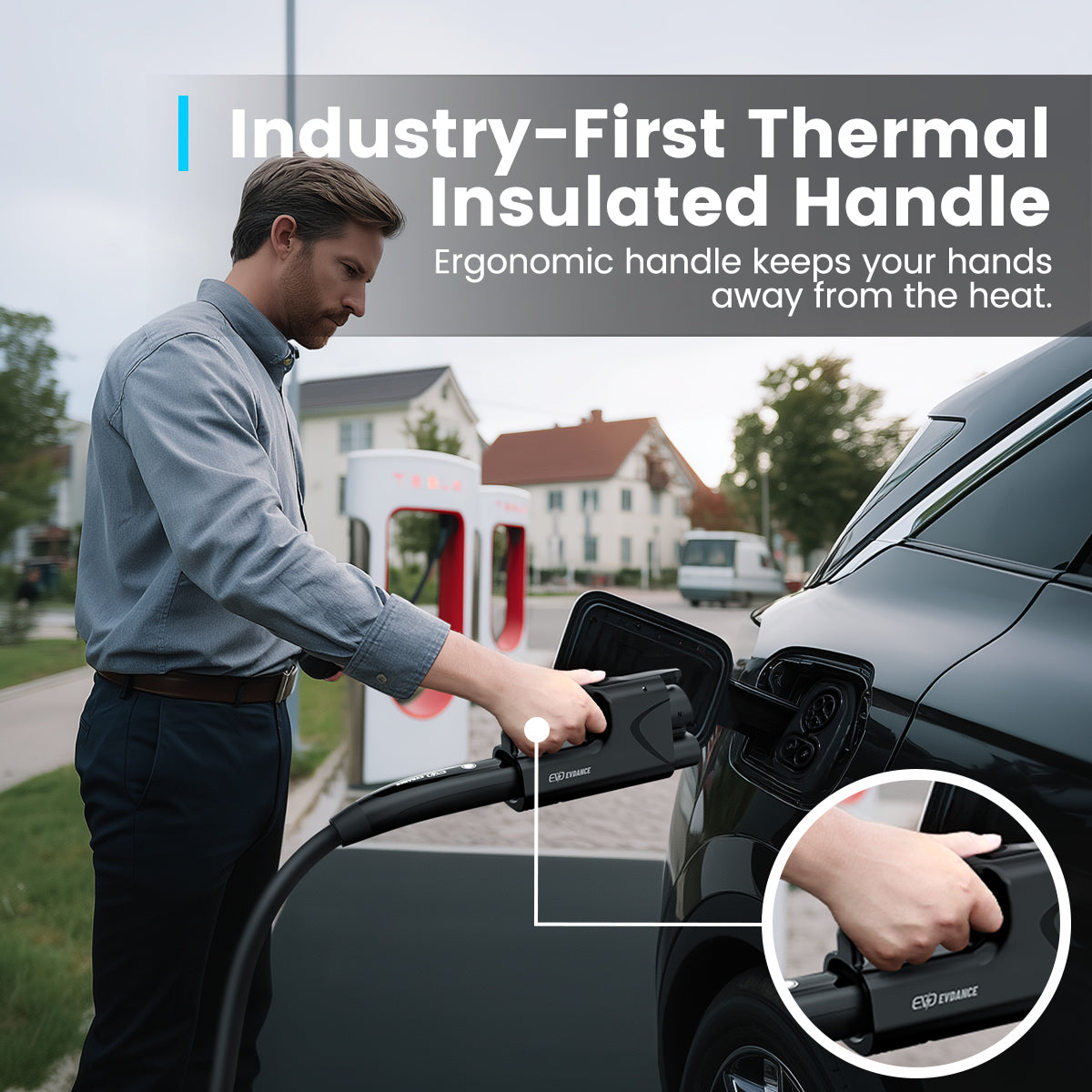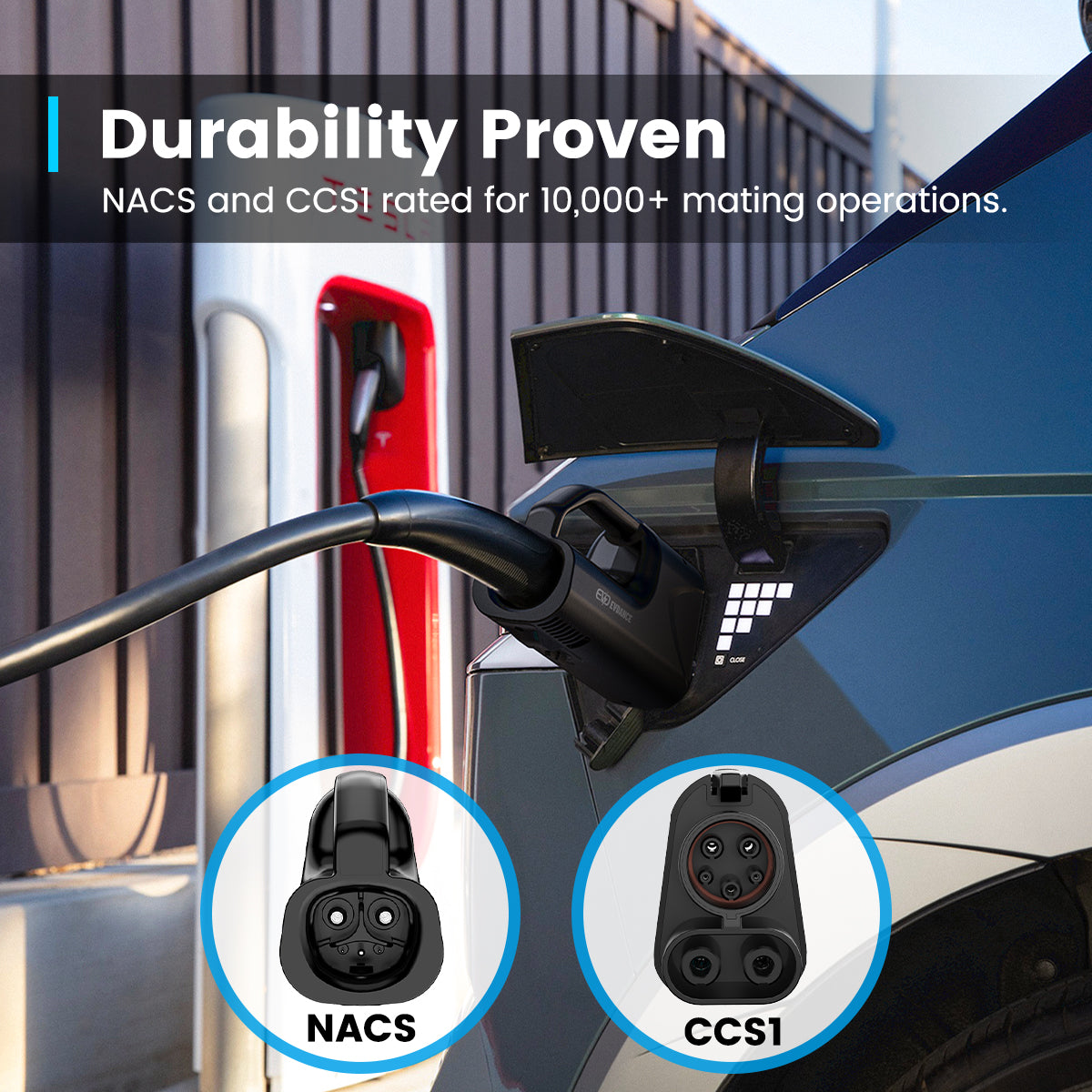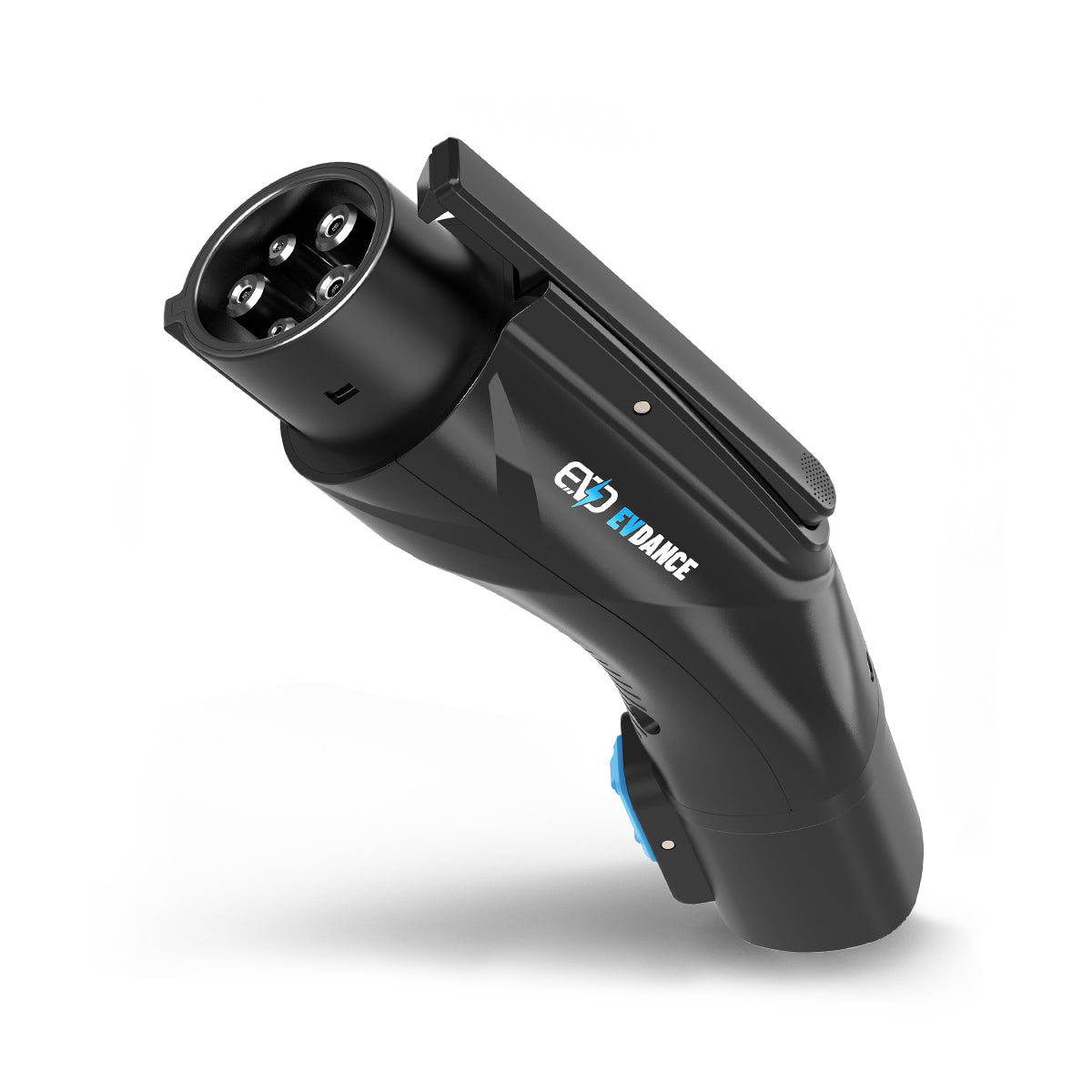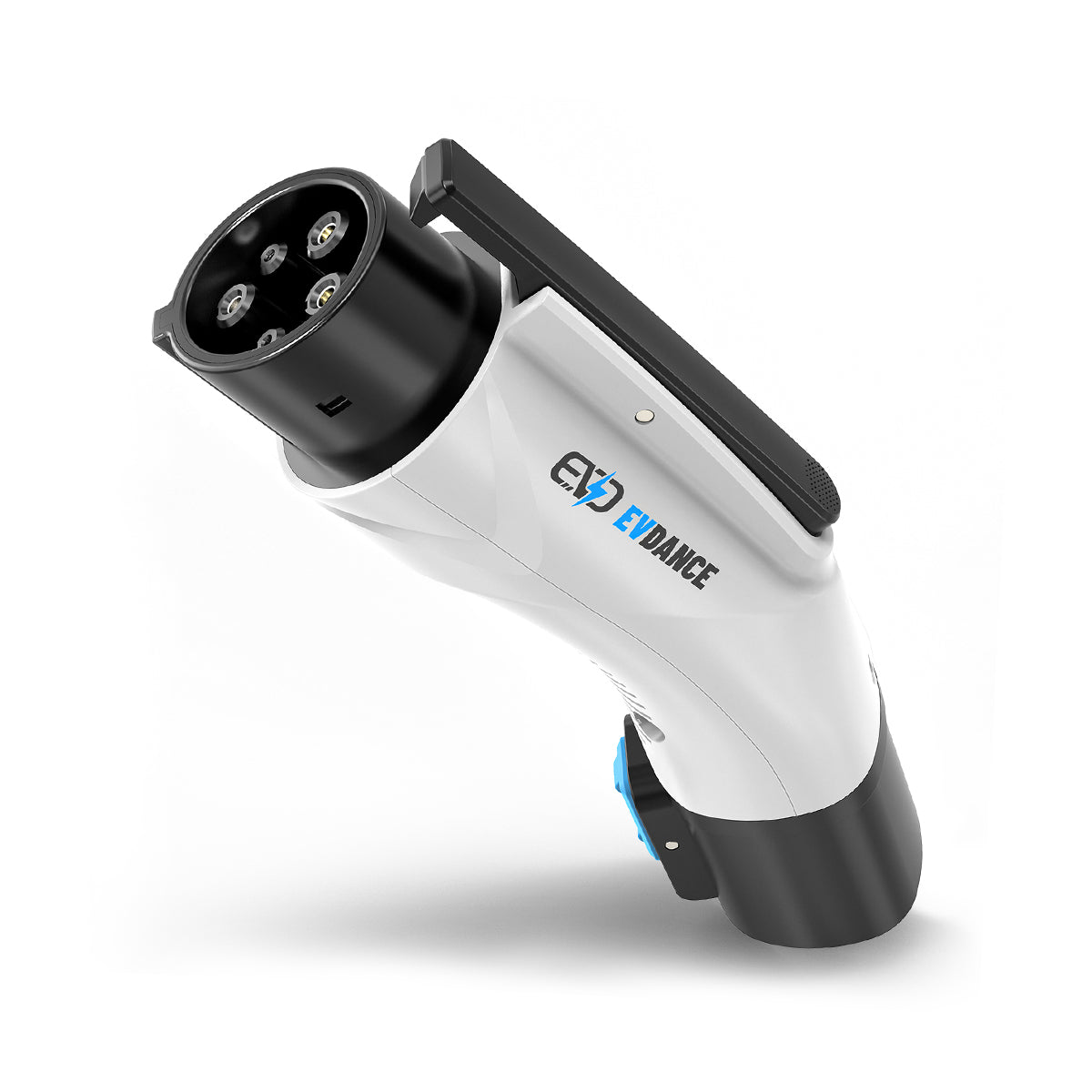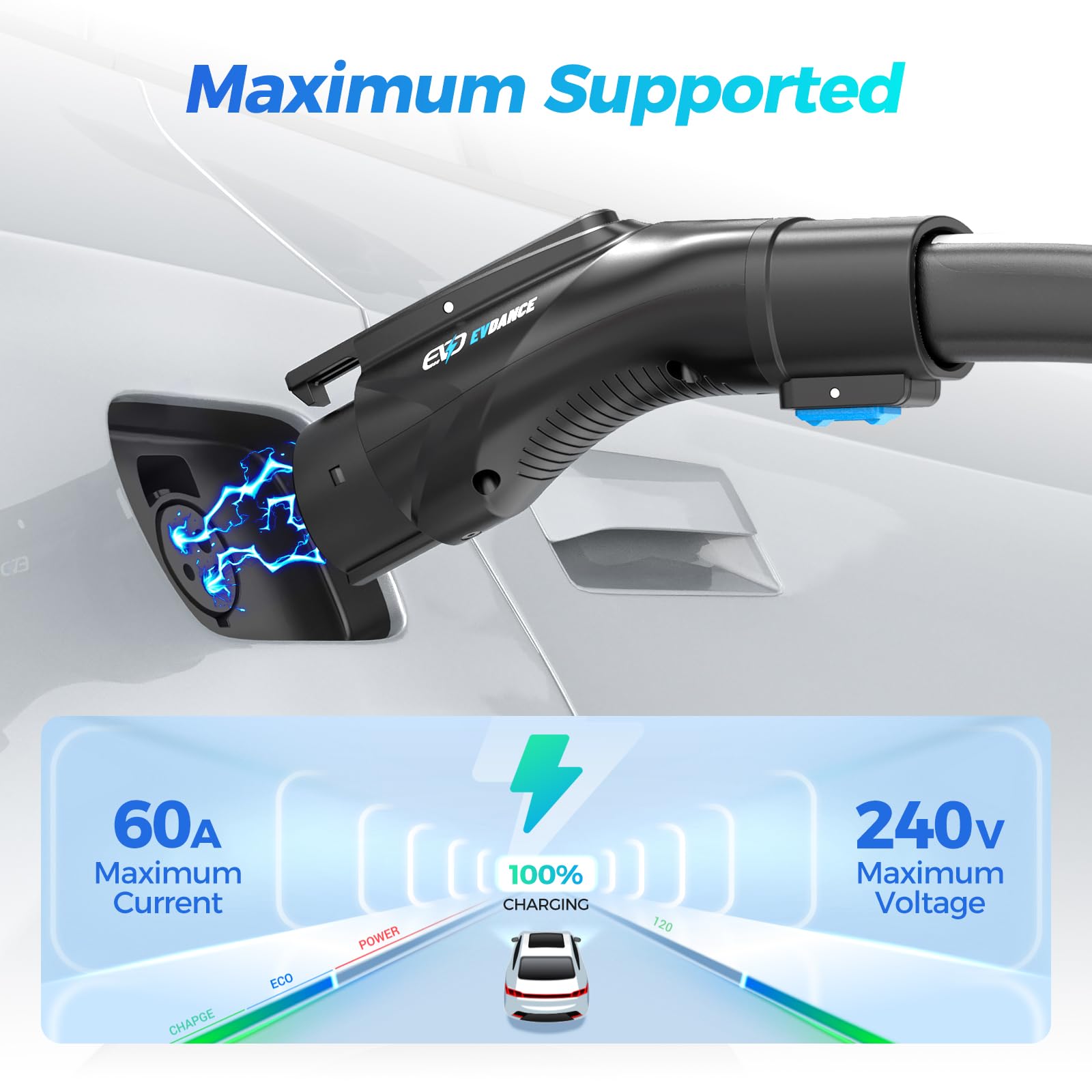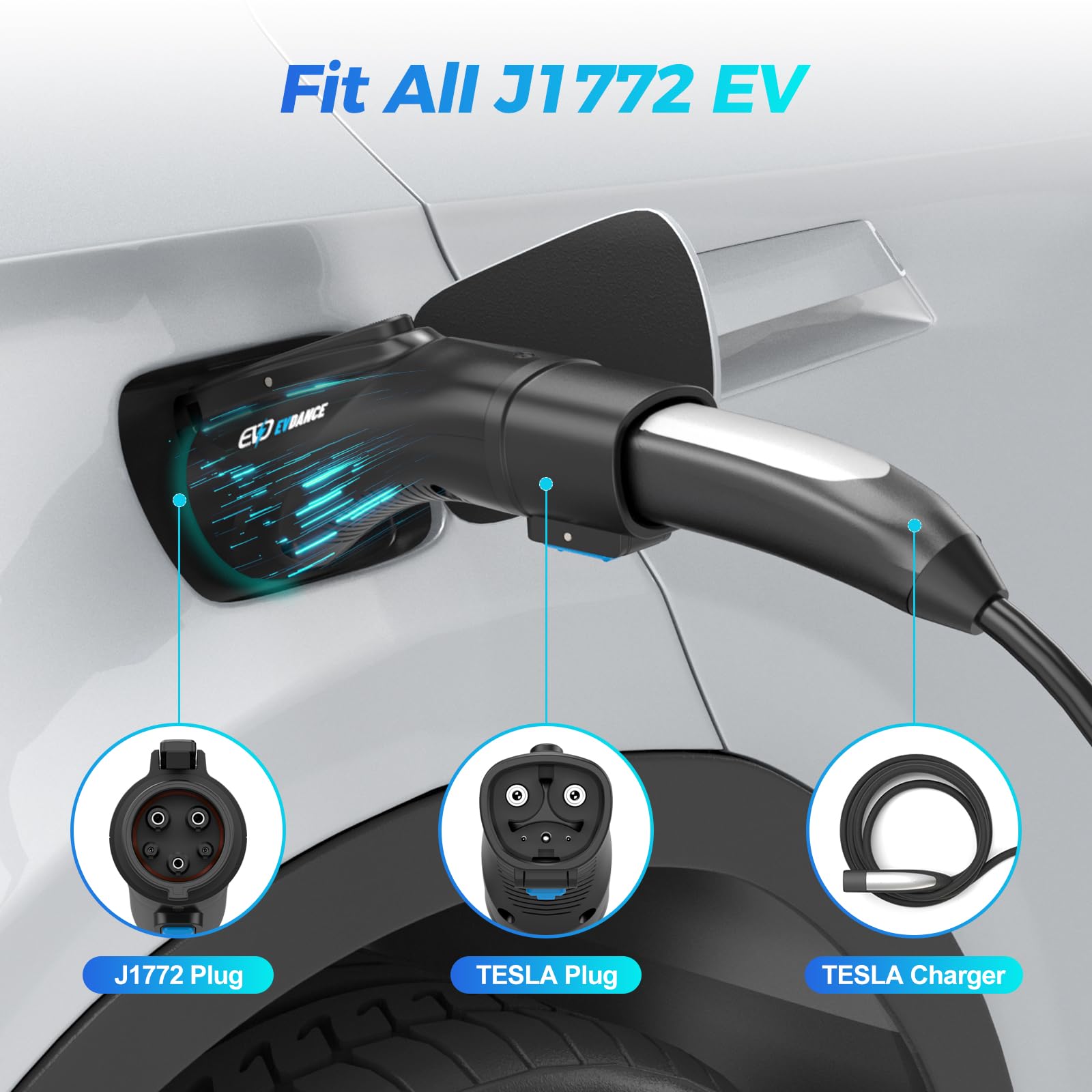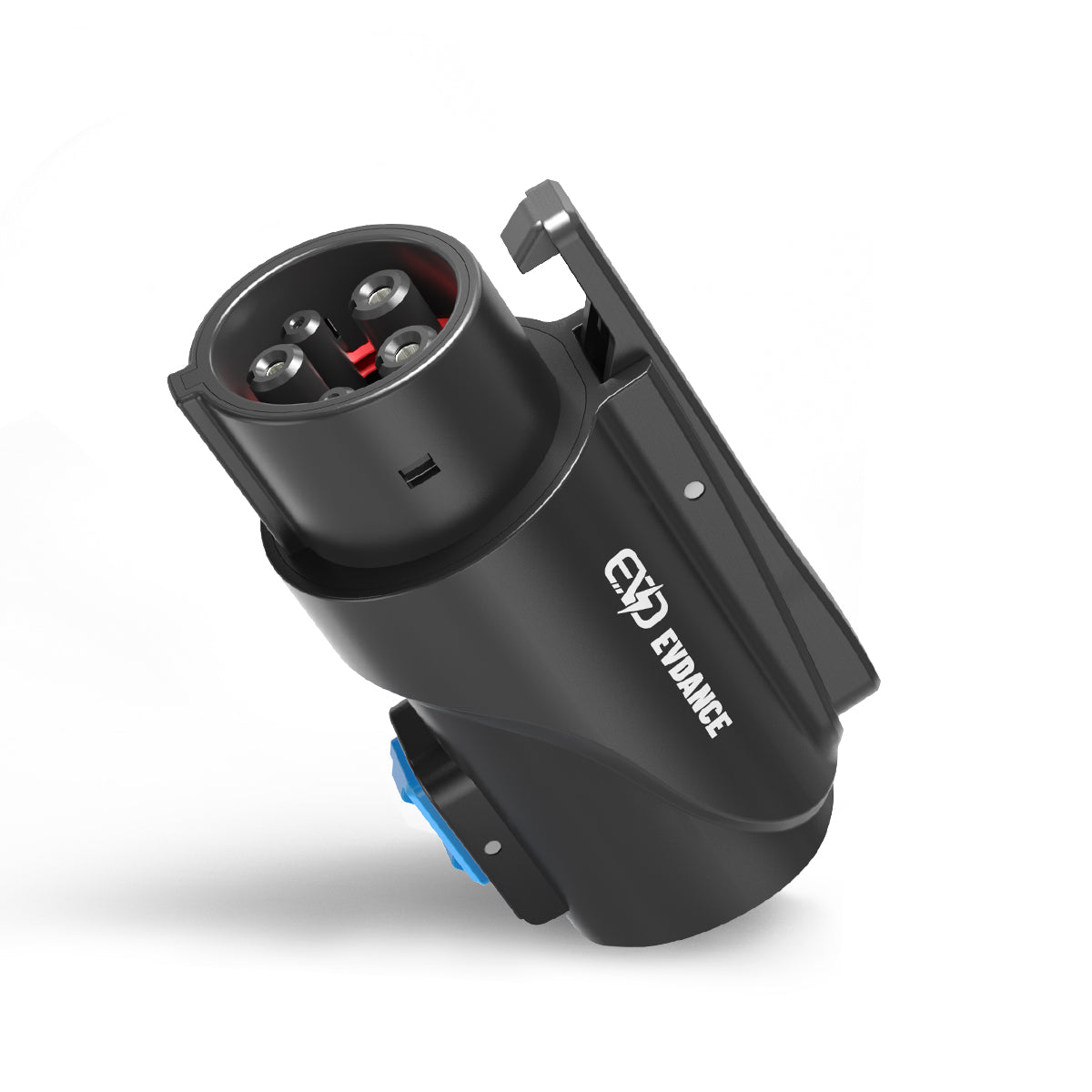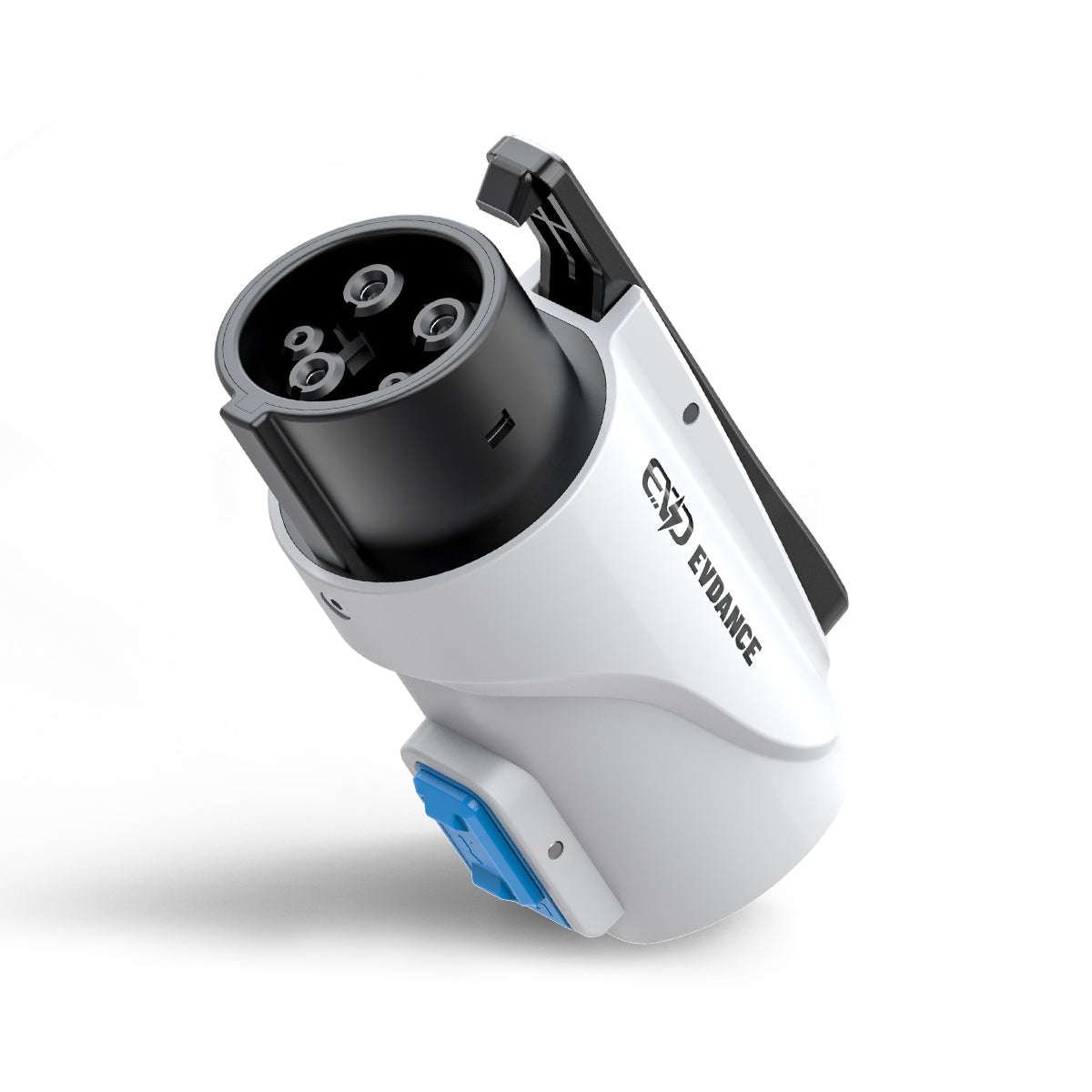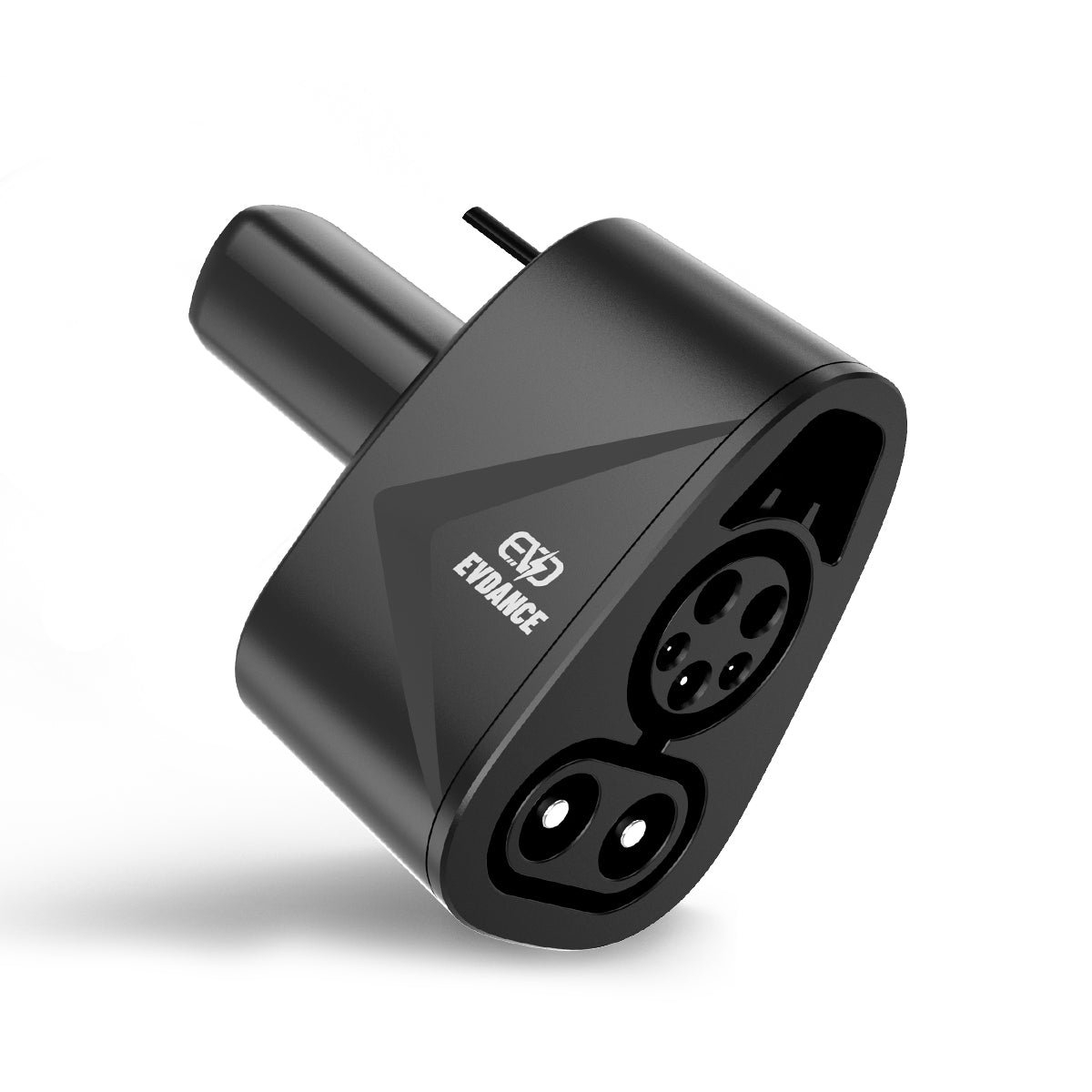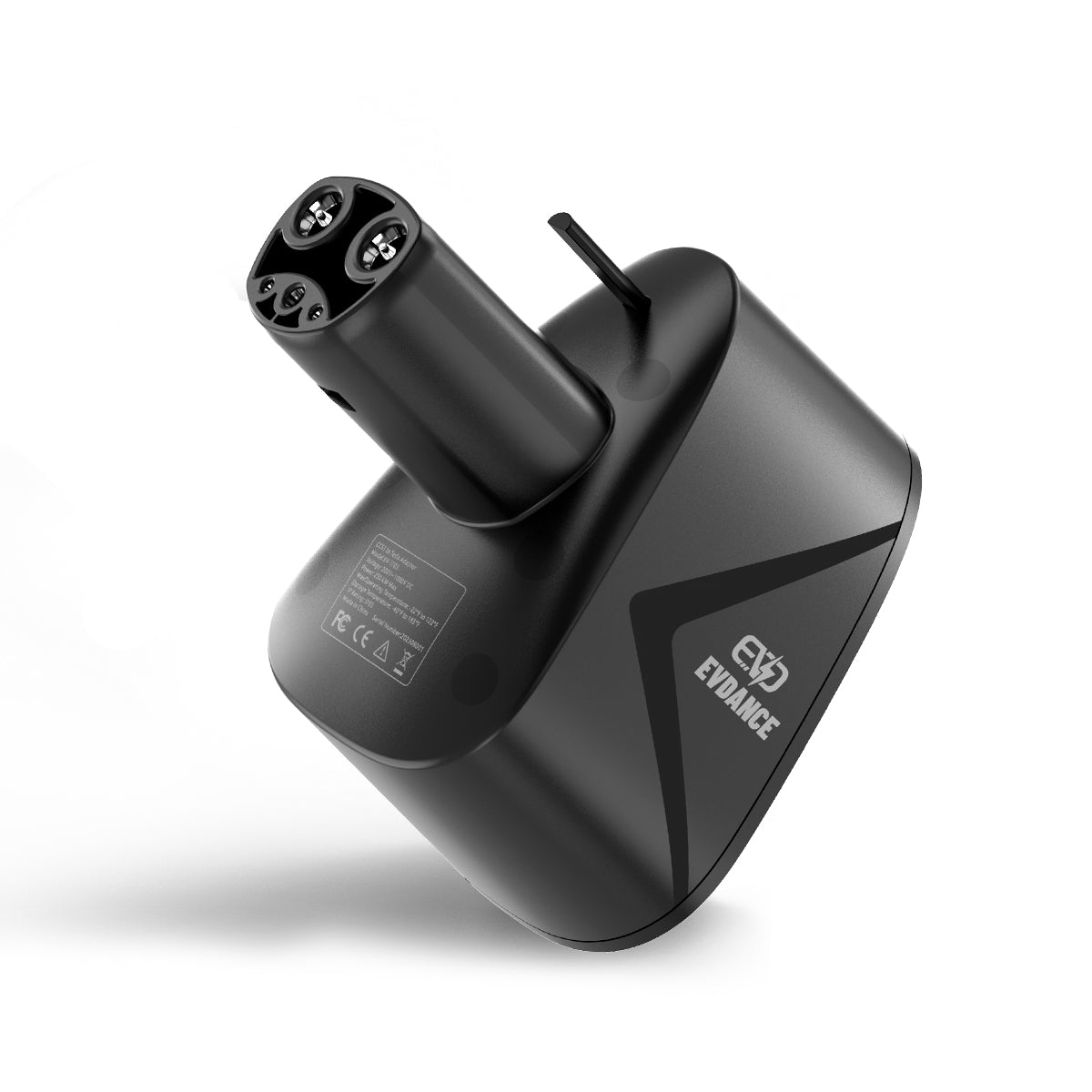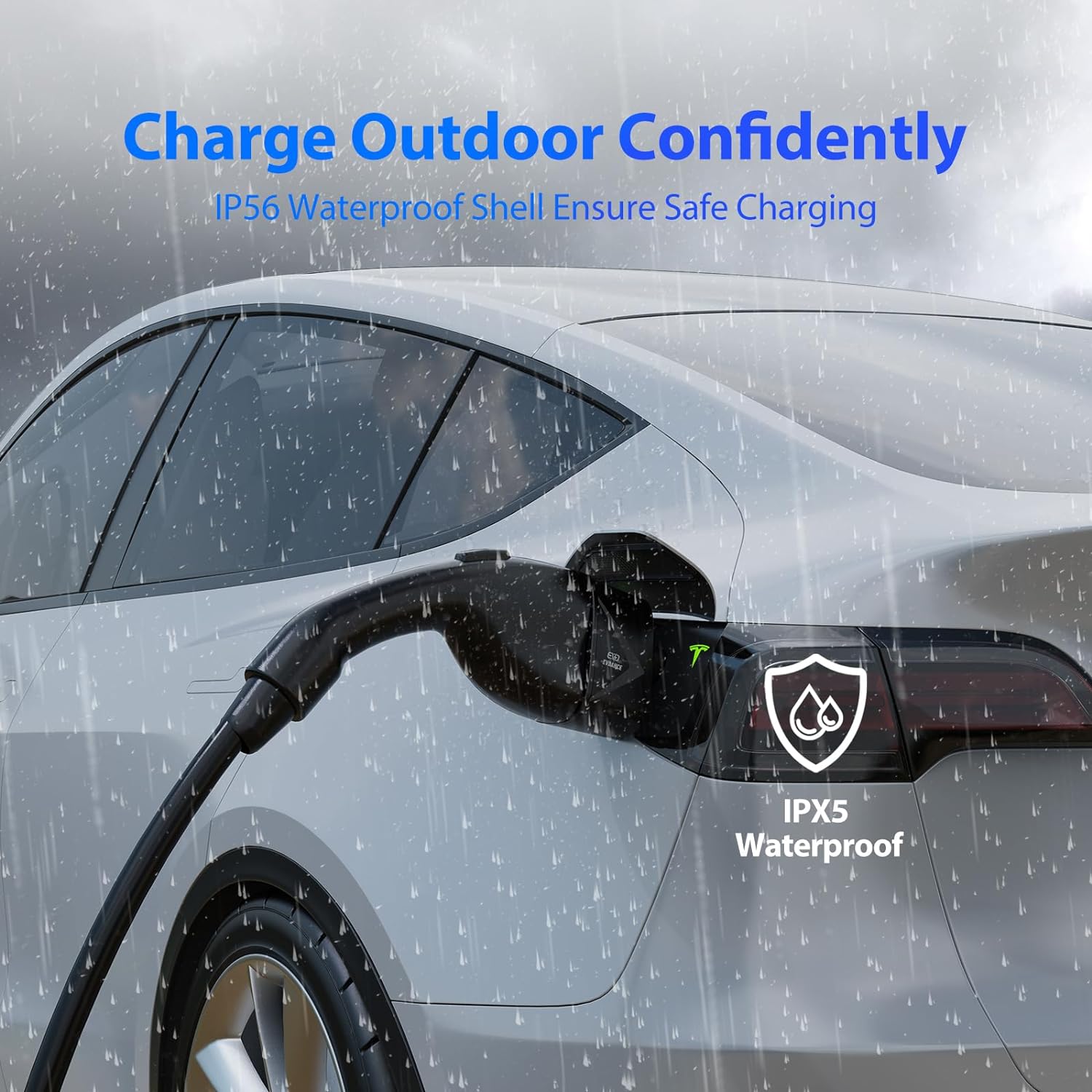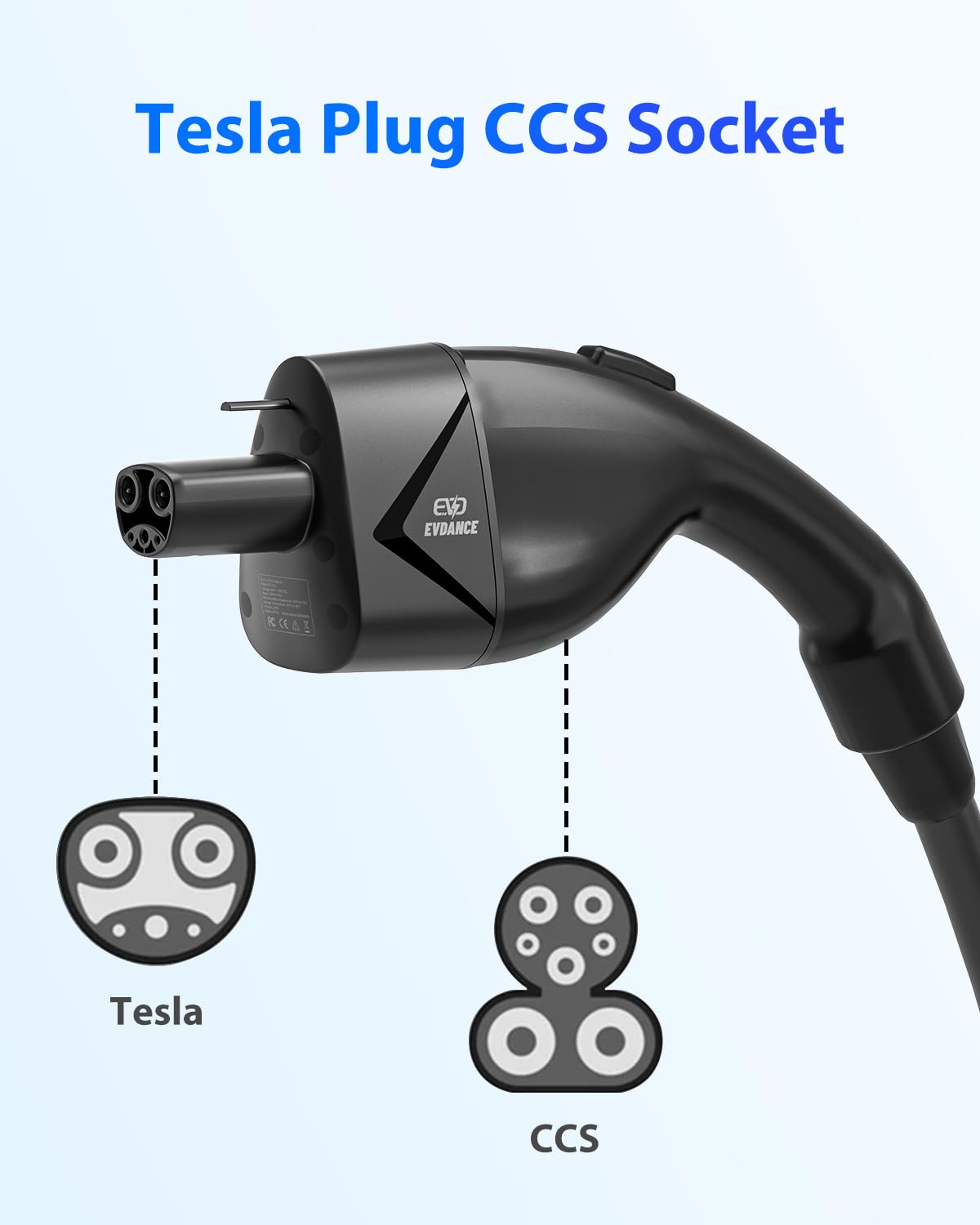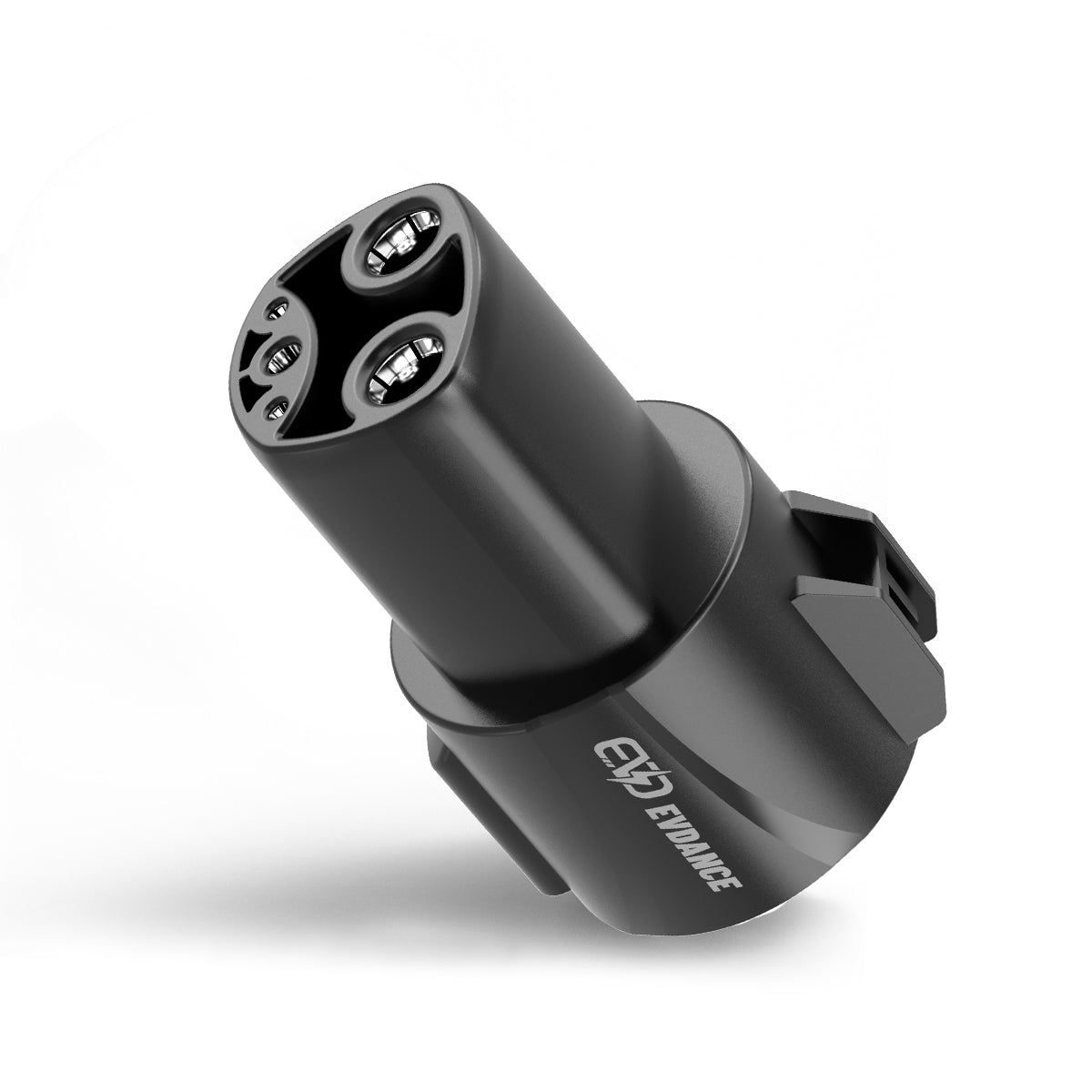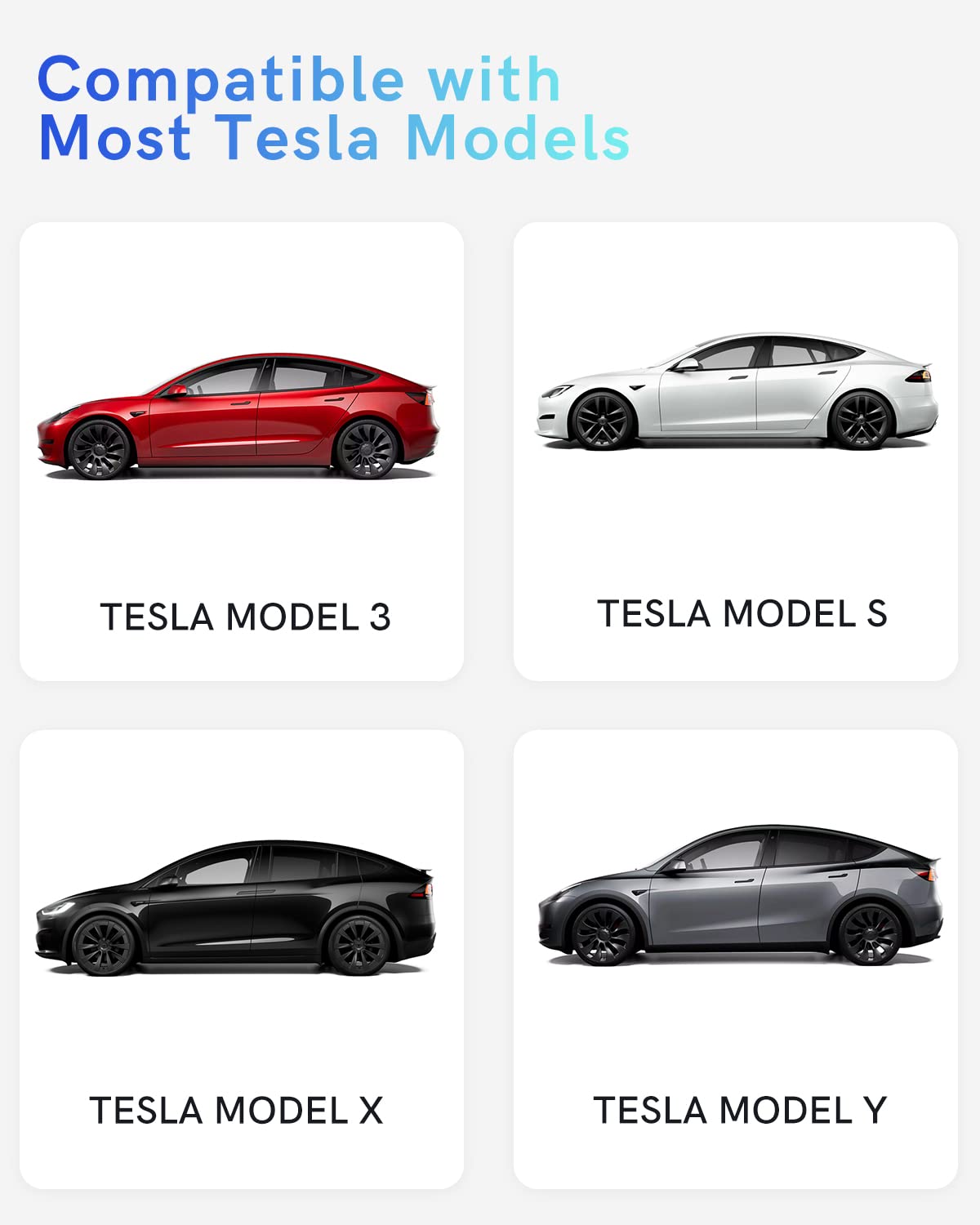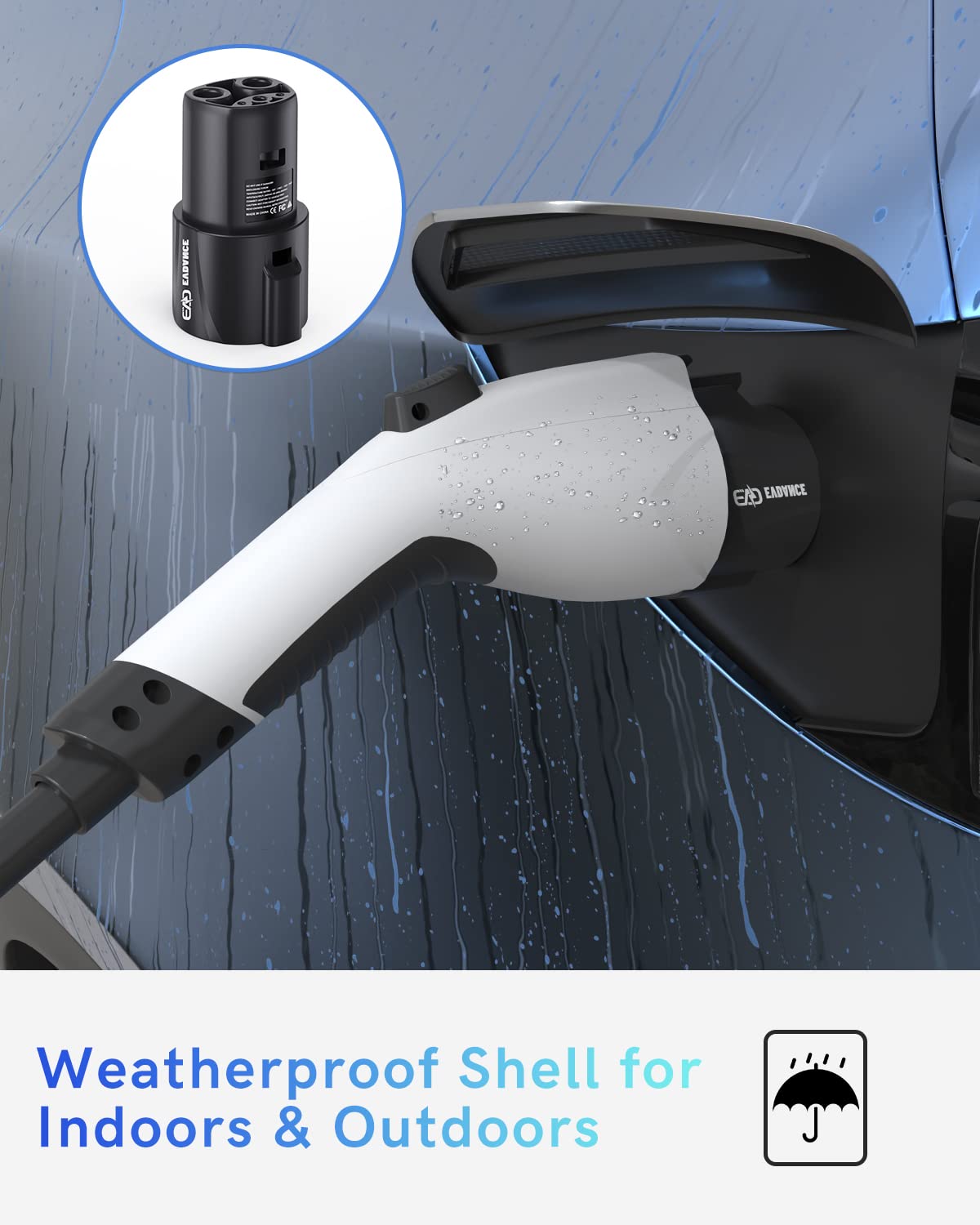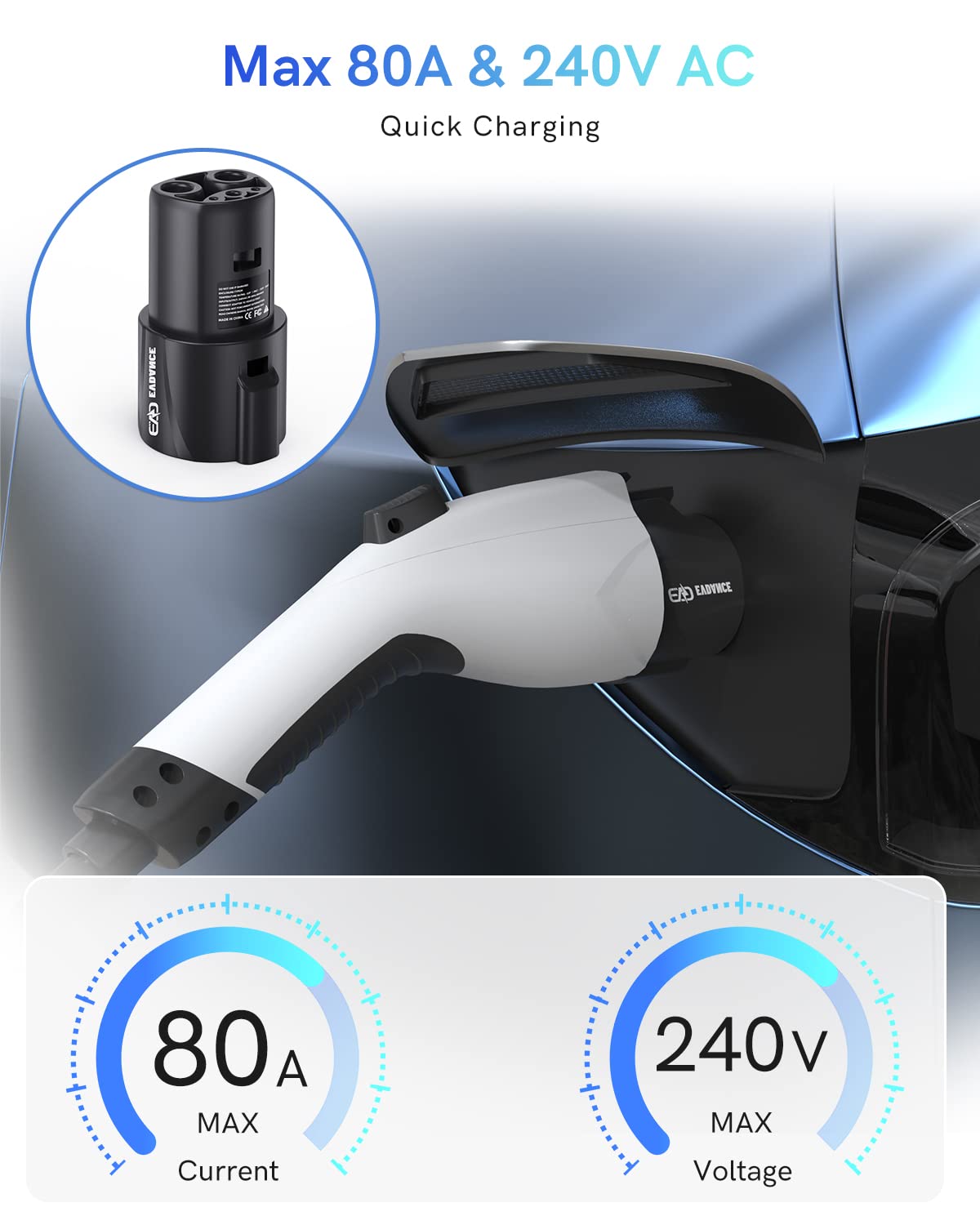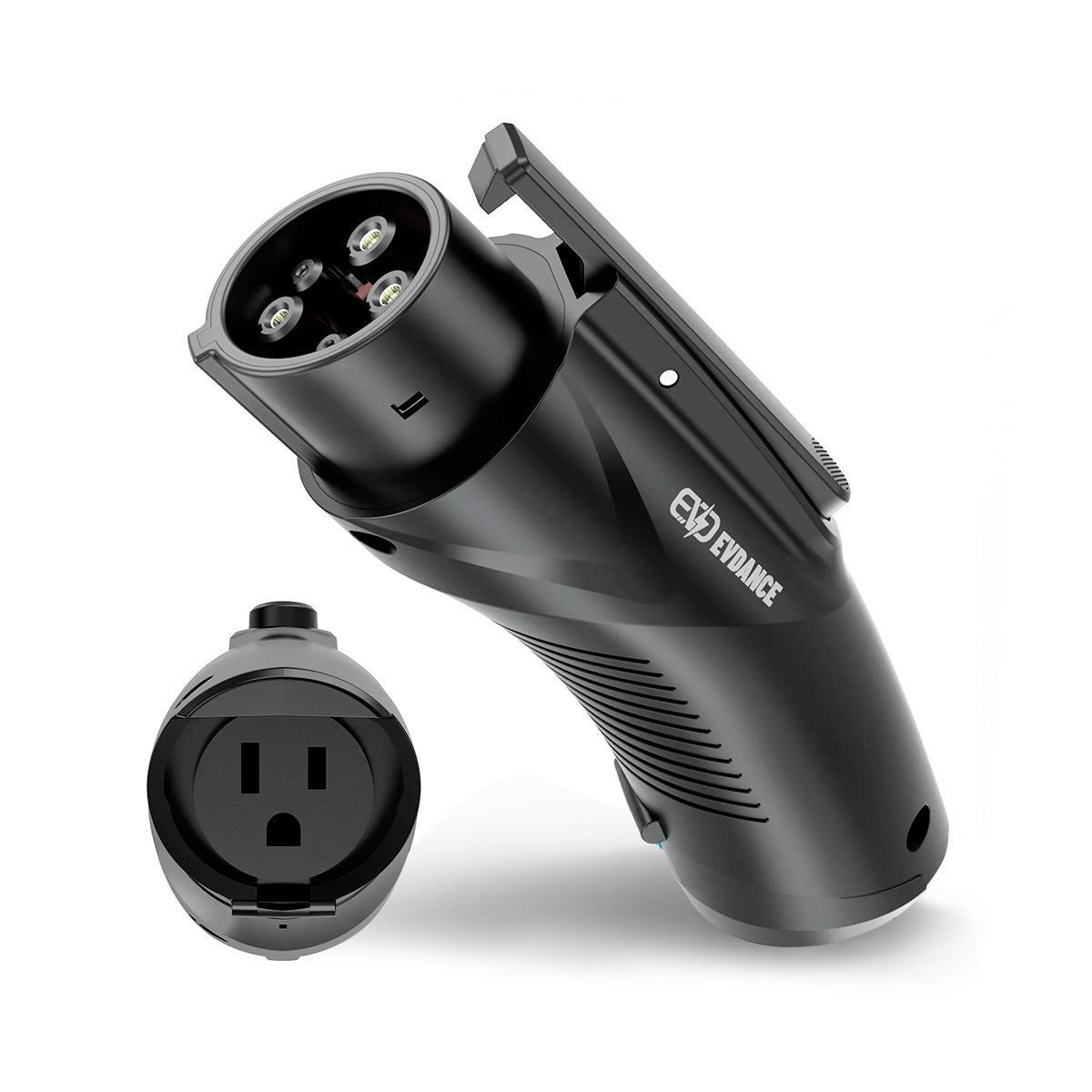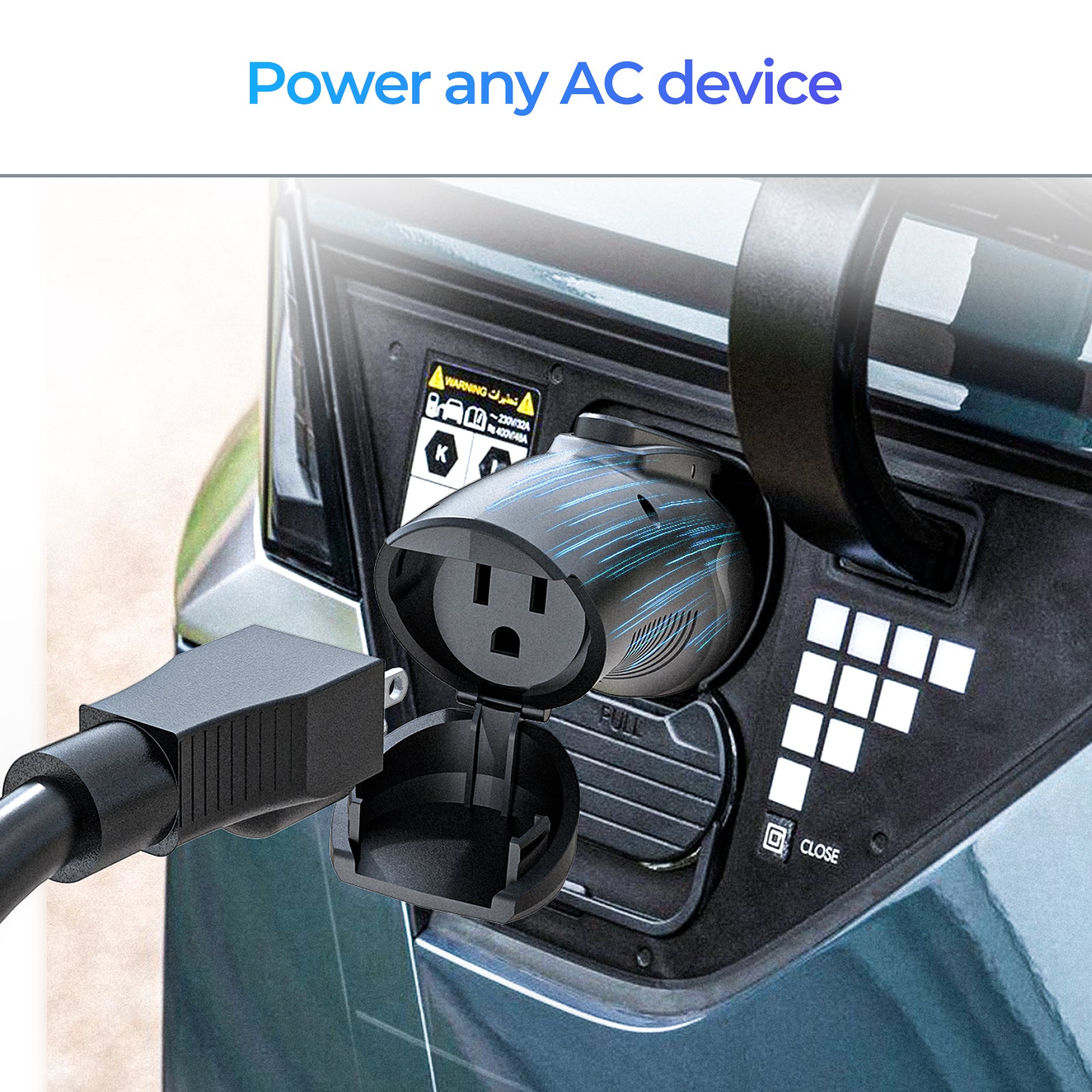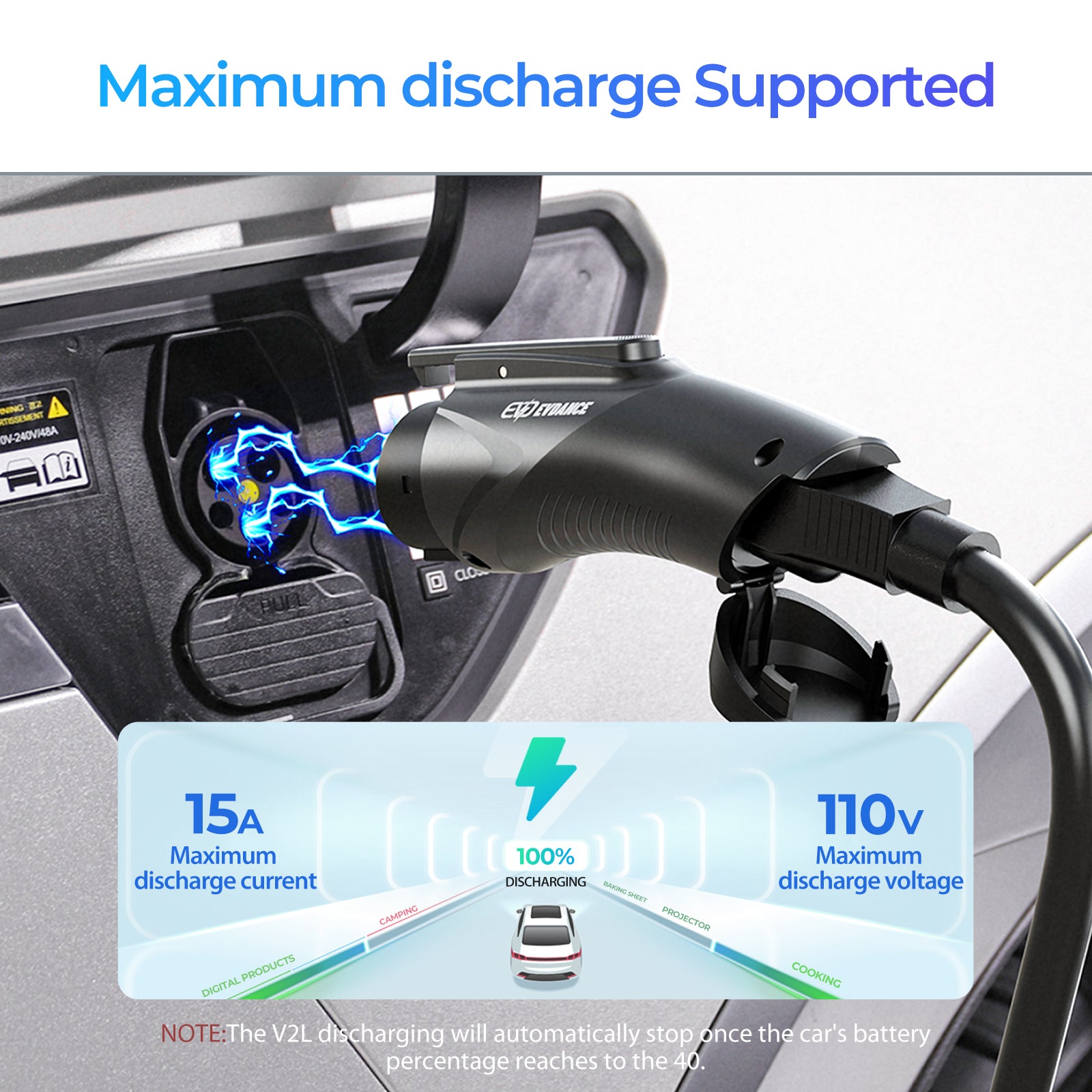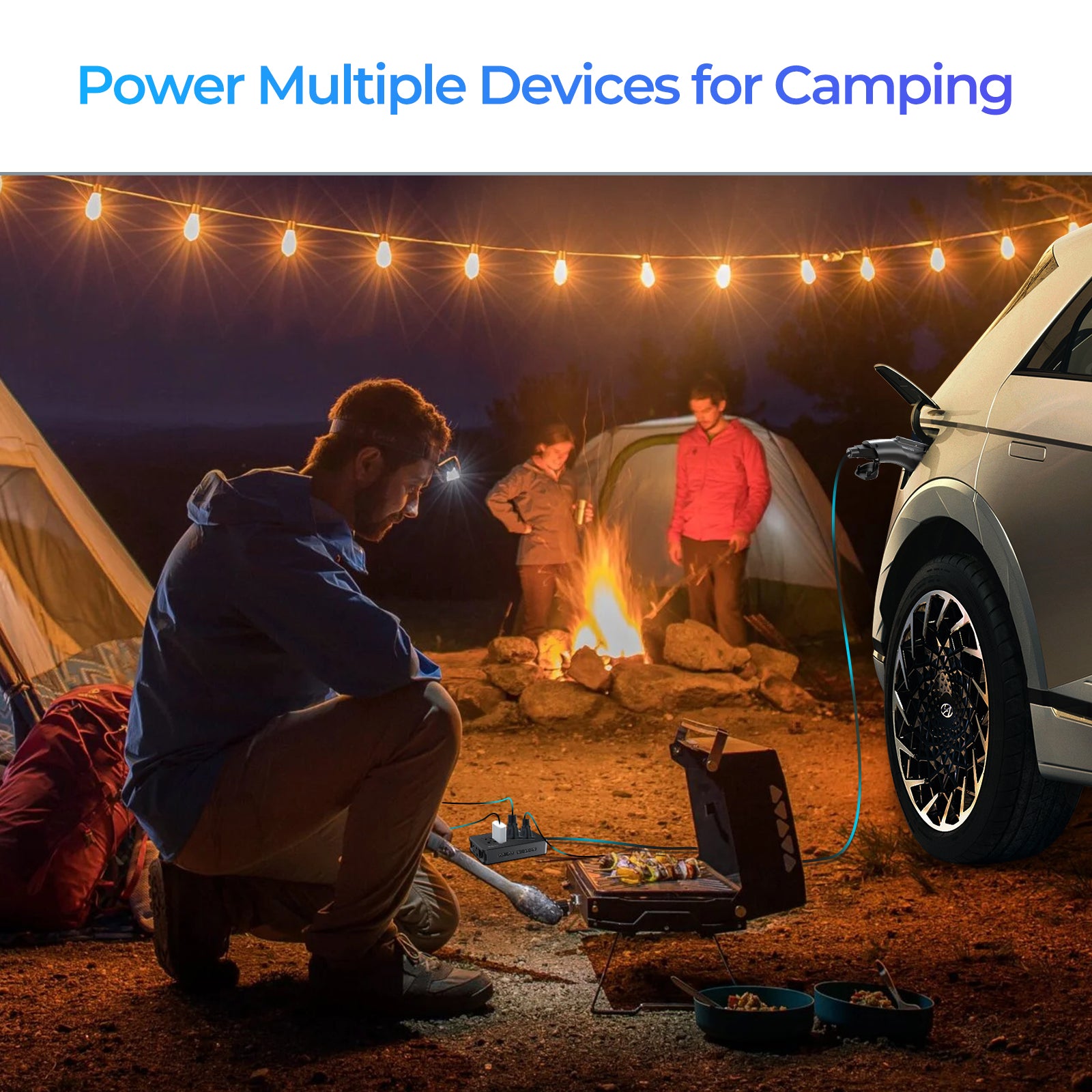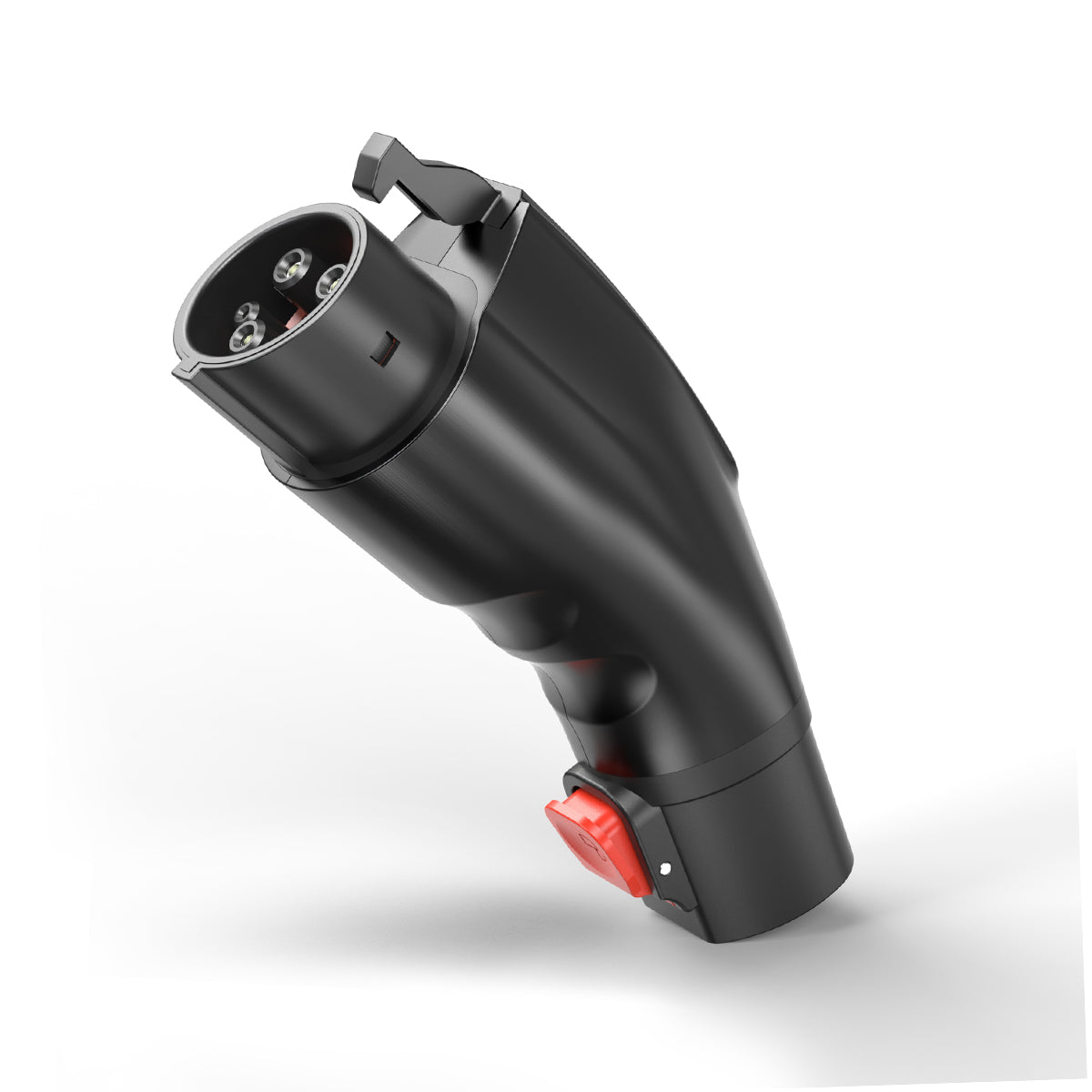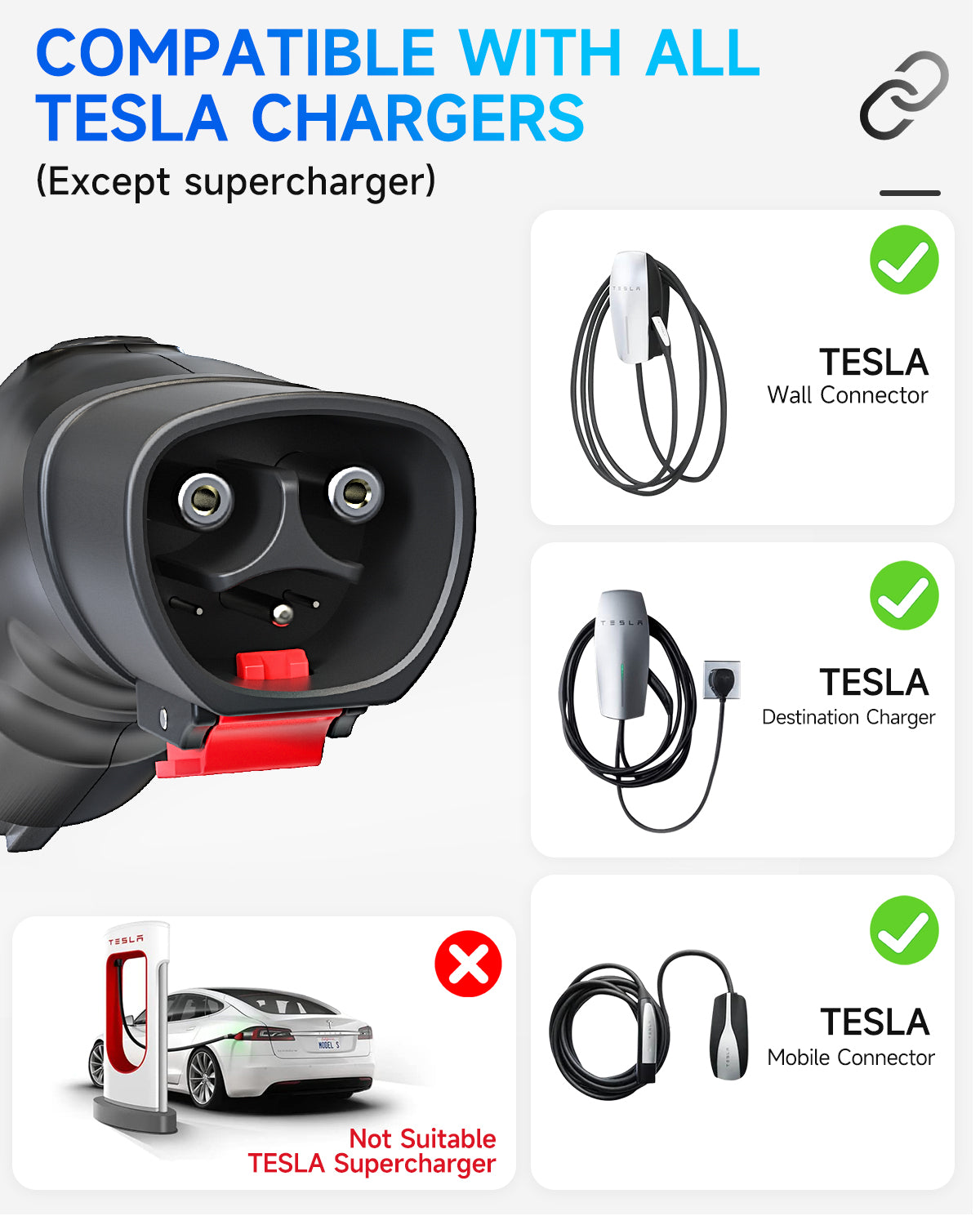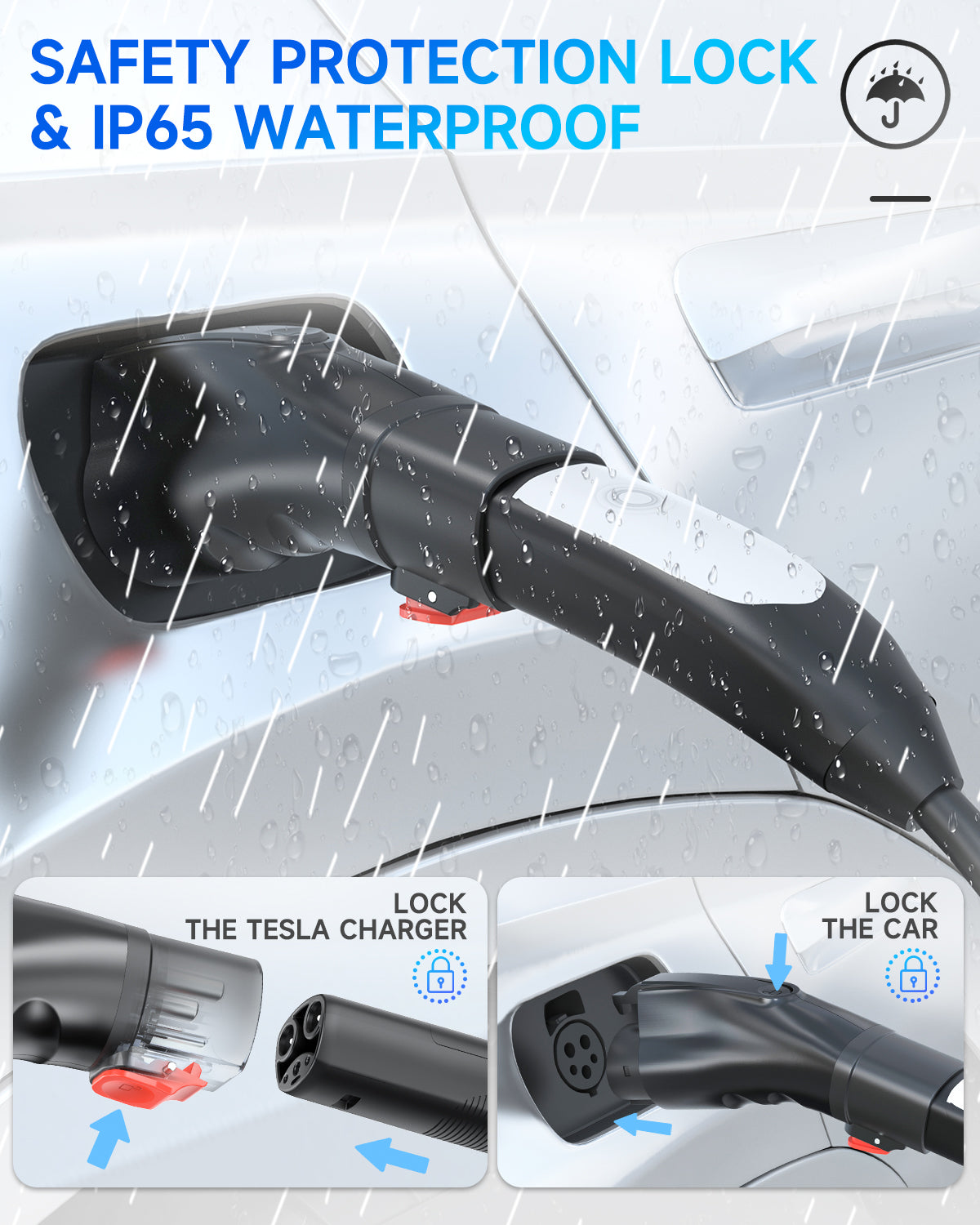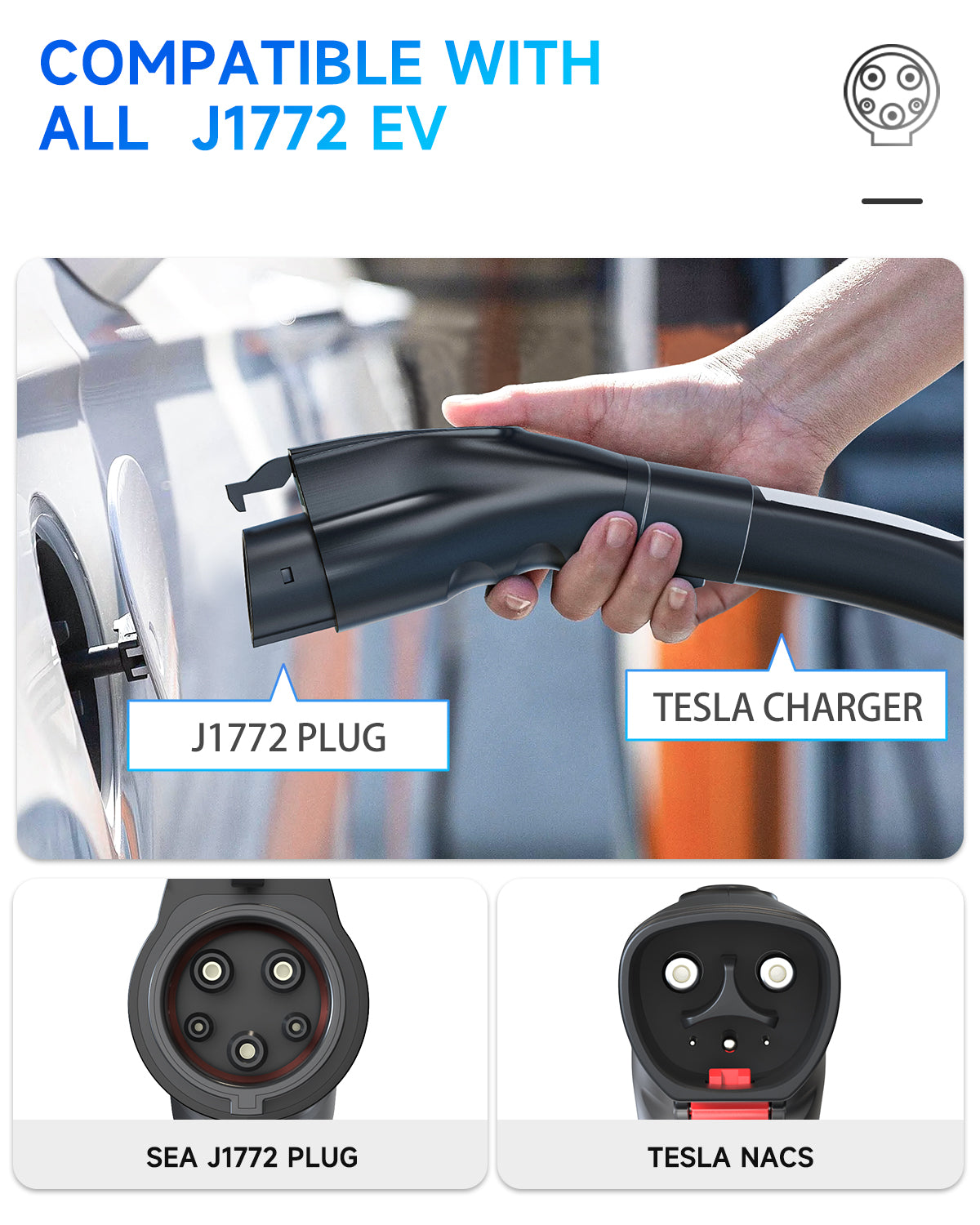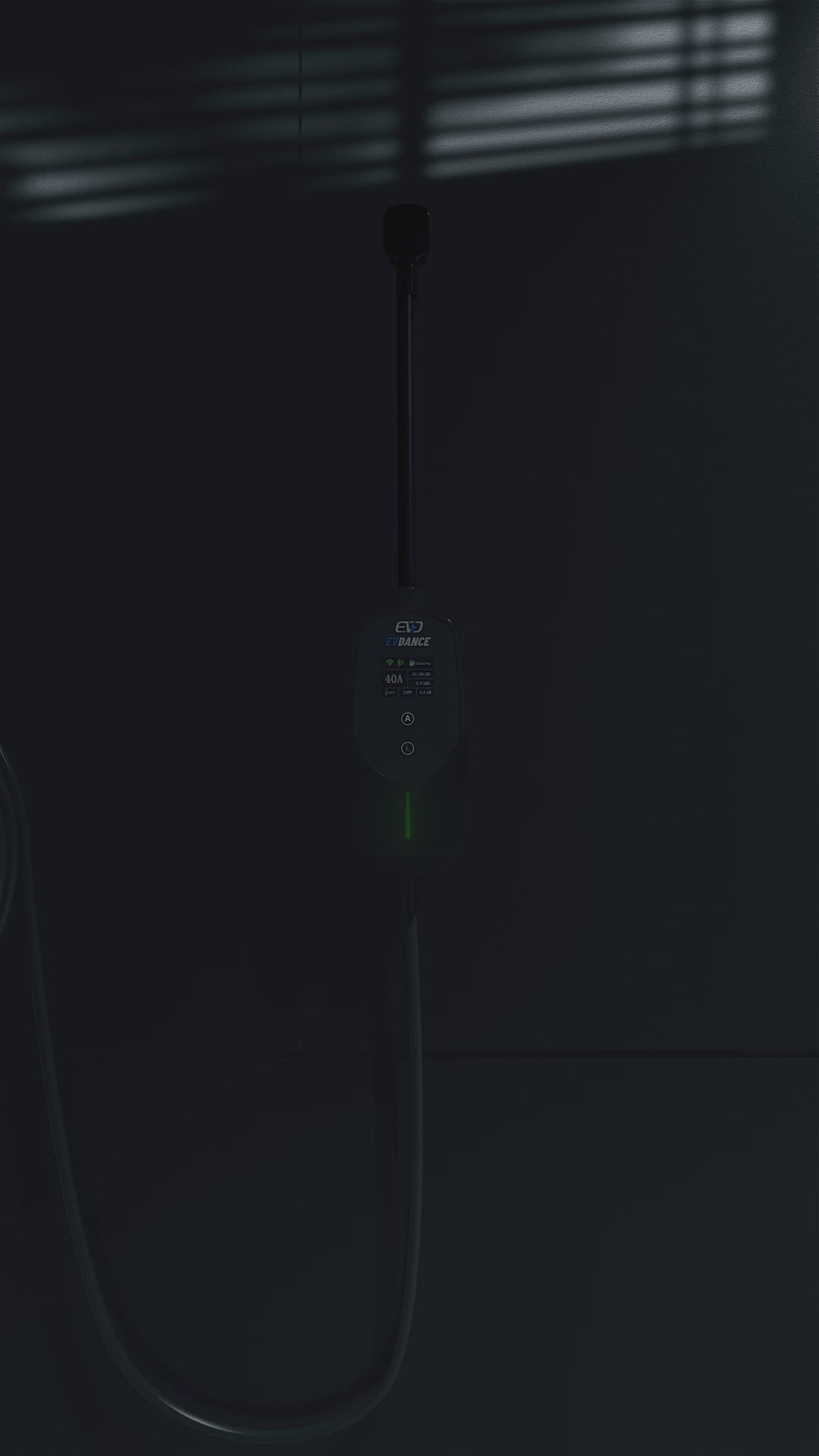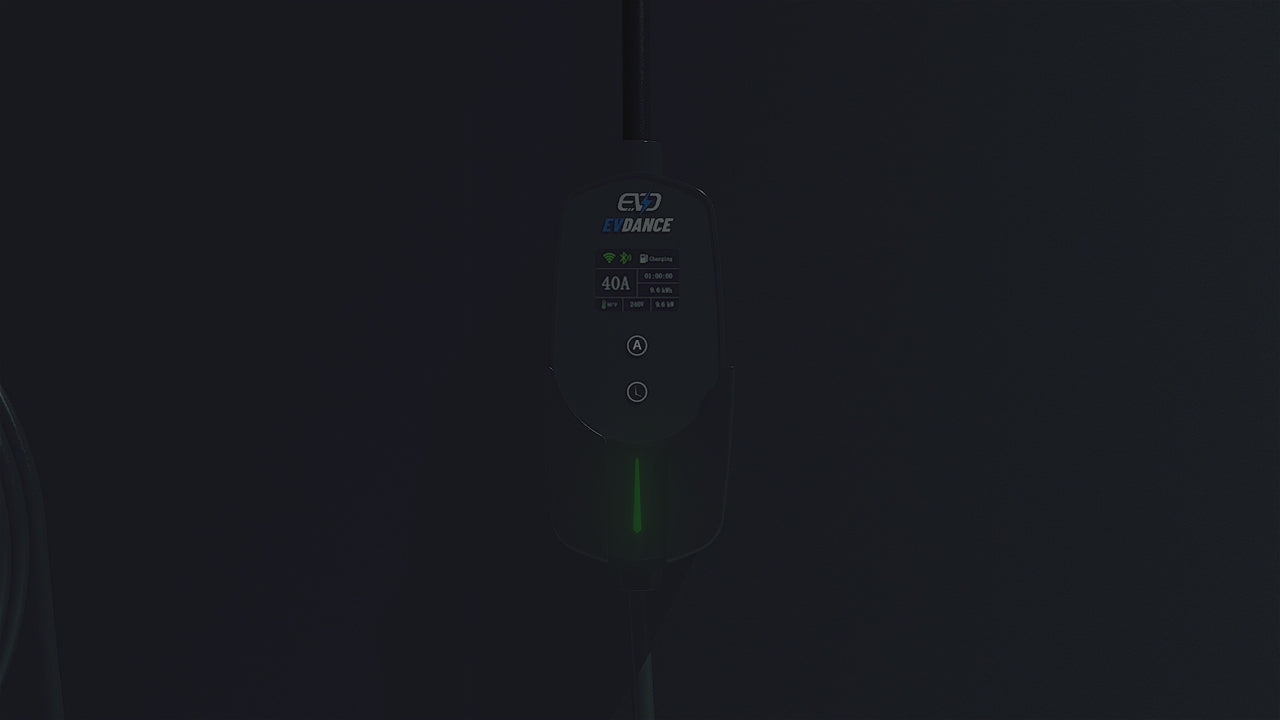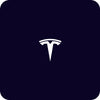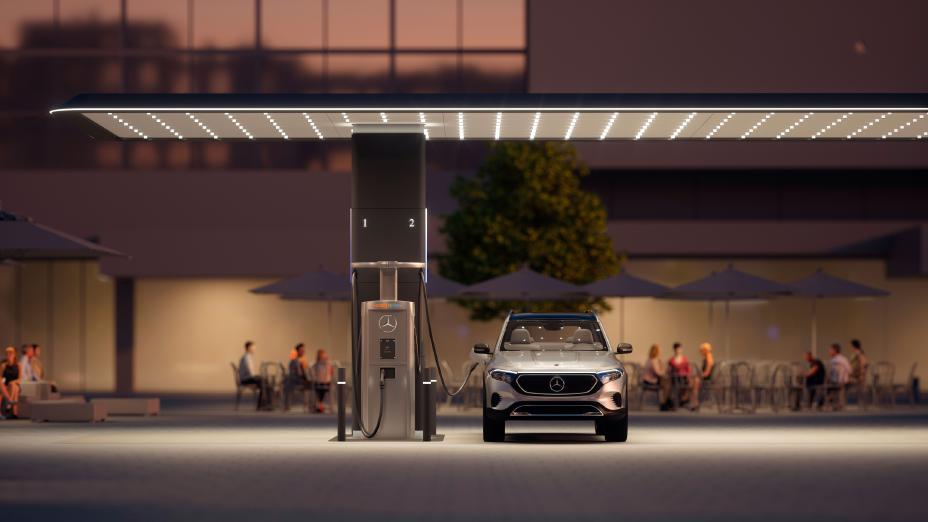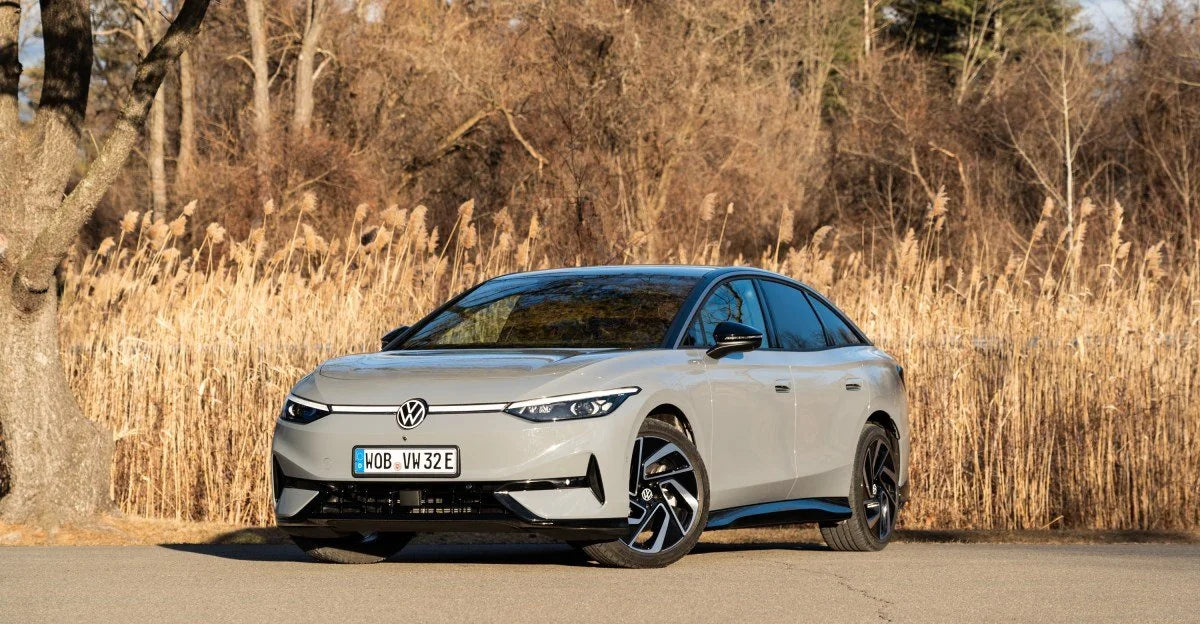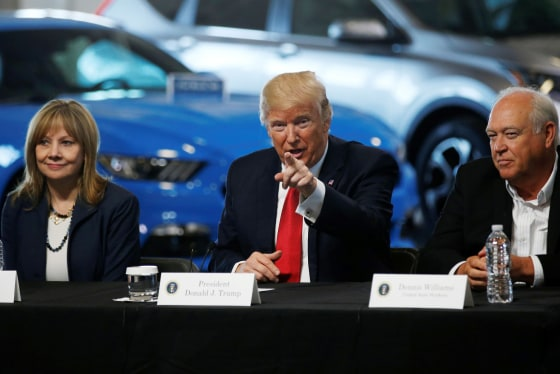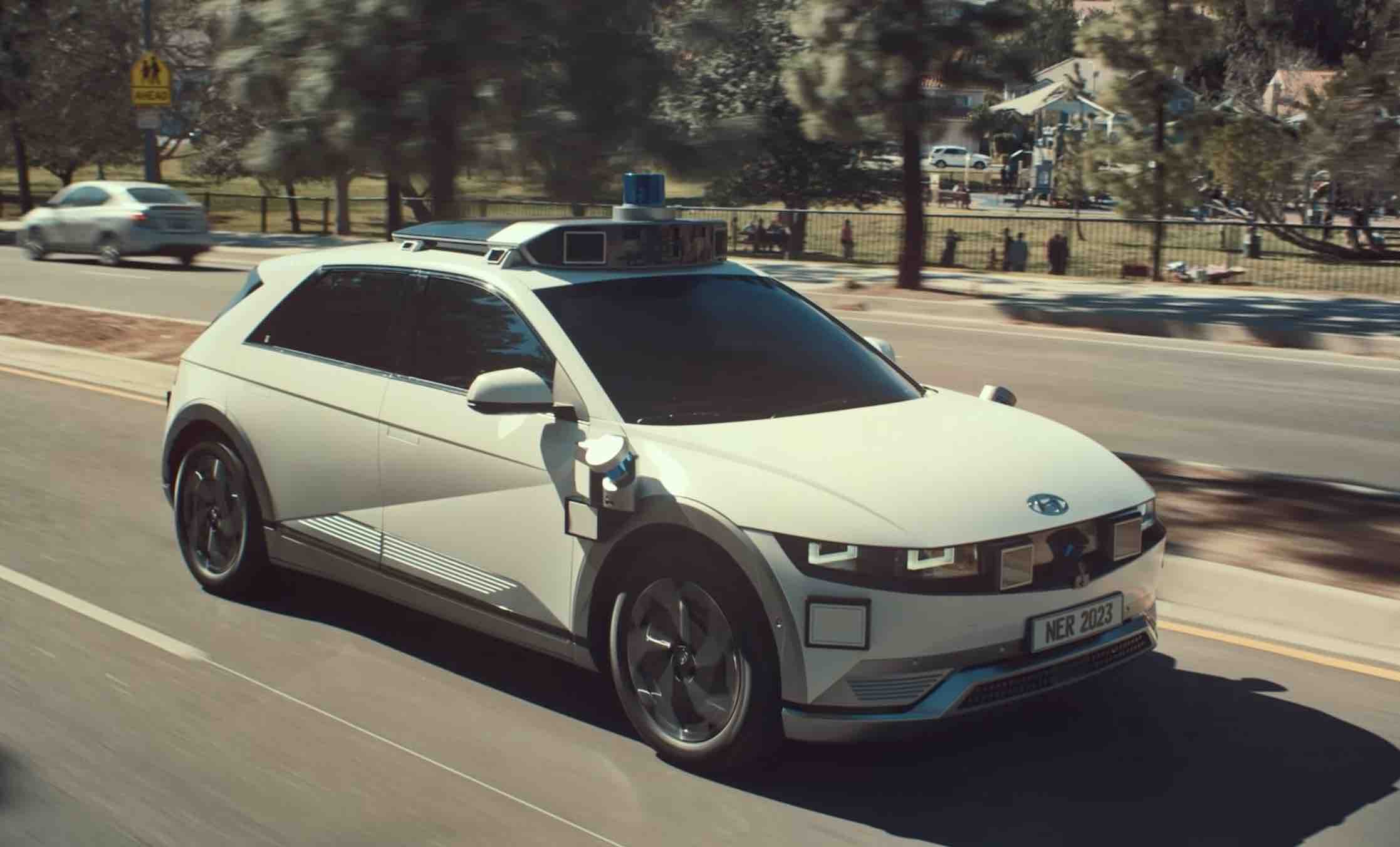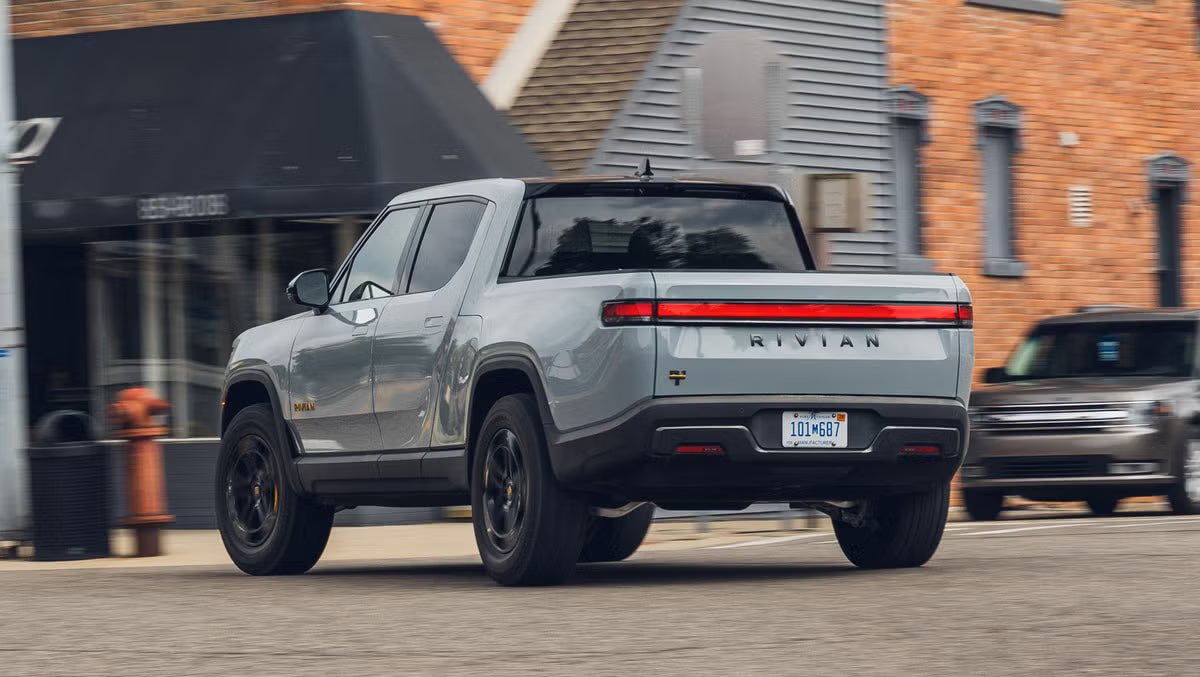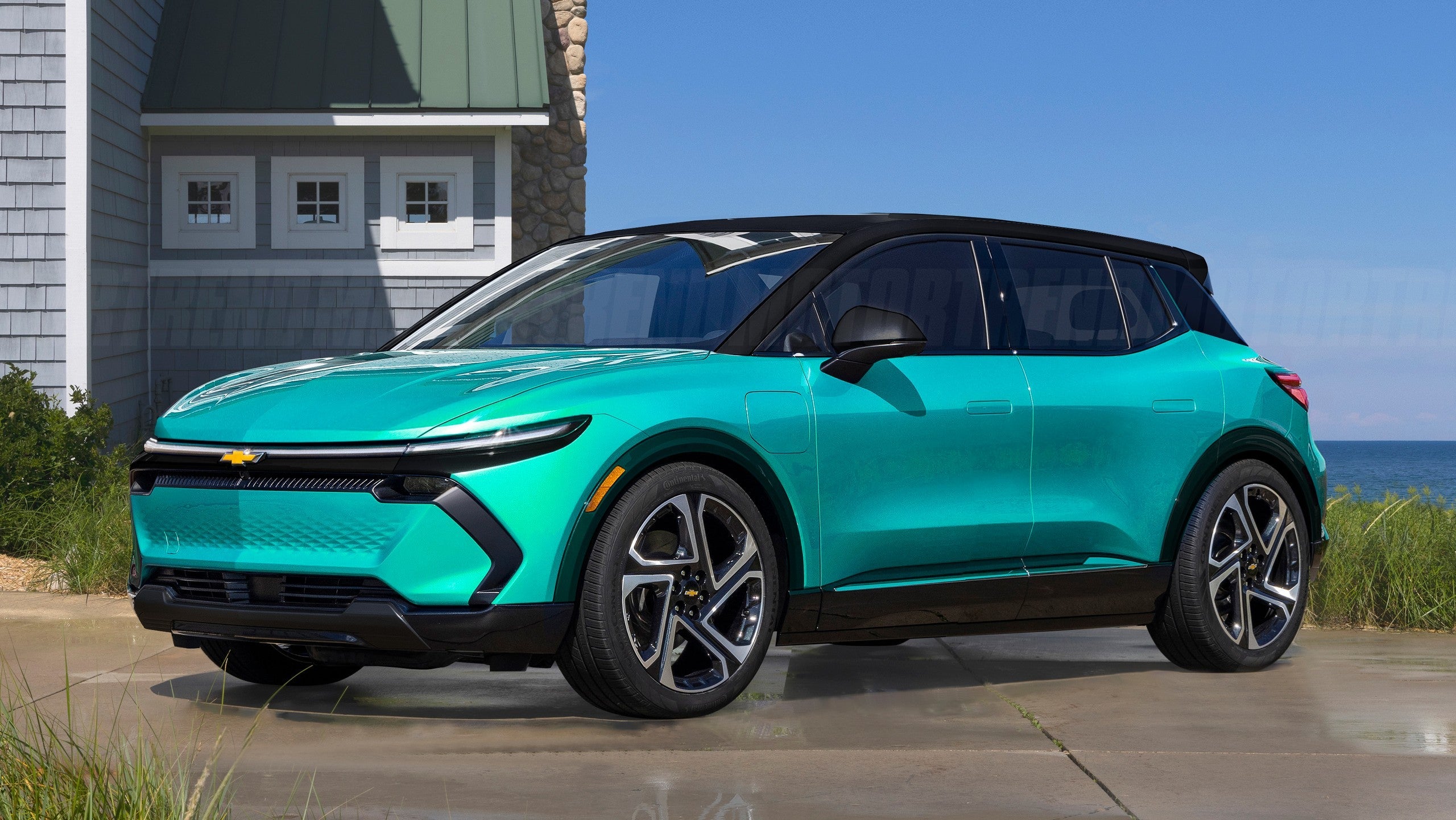AS SEEN ON
Best Sellers
EVDANCE Level 1&2 NEMA 6-20 Plug 12/16A Portable EV Charger 25FT Cable
EVDANCE Portable Tesla Level 1+2 EV Charger | 110V &240V| 16 Amp | NEMA 5-15&6-20
EVDANCE Flux Level 1 NEMA 5-15 Plug 12A J1772 Portable EV Charger
EVDANCE Flux Level 1 NEMA 5-15 Plug 12A NACS/Tesla Portable EV Charger
EVDANCE Flux Level 2 NEMA 14-50 40A Tesla Portable EV Charger Wifi Enabled
EVDANCE Flux Level 2 NEMA 14-50 40A J1772 Portable EV Charger Wifi Enabled
EVDANCE Level 2 NEMA 14-30 24A NACS Portable EV Charger
EVDANCE Level 2 NEMA 14-30 24A J1772 Portable EV Charger
EV Adapters
EVDANCE Pulse Fusion NACS DC To CCS1 Adapter
EVDANCE Tesla(NACS) to J1772 Charging Adapter with Security Lock
EVDANCE Mini Tesla(NACS) to J1772 Charging Adapter Max 80 Amp & 250V
EVDANCE CCS1 To NACS Adapter 250KW
EVDANCE SAE J1772 to Tesla Charging Adapter 80 Amp/ 240V
EVDANCE V2L Adapter for Hyundai Ioniq 5 & Ioniq 6,Kia EV6 15 Amp
Tesla(Nacs) to J1772 Charging Adapter with Security Lock - Promote
RECOMMENDED BY

Kim Java
If you go to a friend's house and their car is blocking the charger or the charger is in an awkward spot, or you're travelling just can't quite reach the charger, you can use the extra length that you need.

Robert Rosenfeld
Perfect solution for charging multiple cars without the hassle! Durable, reliable, and makes outdoor charging effortless. Exactly what I needed!

Walter Schulze
When you’re on a roadtrip going to a hotel that has an EV charger, the PlugShare says it's available and working, and when you get there it is ICEd. That's where EVDANCE Extension Cord comes into play.
EV Compatibility
Customer Support
Monday - Friday
24/7 Customer Support
1-Year Warranty
EVDANCE Covers A Period Of 12 Months From The Date Of Purchase.
Fast Free Shipping
Fast Free US & DE & CA Shipping 48 - 72 Hours
Secure Payment
On EVDANCE Your Payment Information Is Processed Securely
FAQ
What types of EV chargers are available and which one is right for me?
There are mainly three types of EV chargers: Level 1, Level 2, and DC Fast Chargers. Level 1 chargers use a standard household outlet and are best for overnight charging at home. Level 2 chargers require a 240V outlet and charge faster, making them suitable for both home and public use. DC Fast Chargers provide rapid charging and are commonly found in public charging stations.
How long does it take to charge an electric vehicle?
Charging time varies based on the charger type and the vehicle's battery capacity. Level 1 chargers can take 8-20 hours to fully charge, Level 2 chargers can take 4-8 hours, and DC Fast Chargers can charge up to 80% in 20-40 minutes.
What are the costs associated with installing an EV charger at home?
The cost of installing an EV charger at home depends on the type of charger, installation complexity, and local labor rates. Level 1 chargers generally cost less since they can use existing outlets, while Level 2 chargers may require electrical upgrades and can cost between $500 to $2,000 including installation. Incentives and rebates might be available to offset these costs.
Are there incentives or rebates for installing EV chargers?
Yes, many regions offer incentives and rebates for installing EV chargers. These can come from federal, state, or local governments, as well as utility companies. Incentives may cover part of the installation costs, provide tax credits, or offer rebates on the purchase of the charger. It's advisable to check local resources for specific programs available in your area.
What is the difference between a connector and a charger?
A connector refers to the physical plug that connects the EV to the charging station, while a charger is the entire system that delivers electricity to the EV. There are different connector types depending on the region and the charging standard, such as Type 1 (J1772) in North America, Type 2 (Mennekes) in Europe, and CHAdeMO or CCS for fast charging.
How do I apply for tax credits to offset my EV charger installation costs?
Want to learn how to claim a tax credit to offset the cost of installing an electric vehicle charger? See here. 2024 EV Tax Credit: The Best Way to Save on Your EV
Not Found Your Qustions?
Go to our QA Question Bank for more answers!
EV NEWS
Stay current with the latest breakthroughs, sales trends, policy updates, and industry shifts shaping the future of electric mobility. From EV startups to legacy automakers, this section delivers timely insights into the rapidly evolving world of electric vehicles—covering tech innovations, market performance, charging infrastructure, and more.
Mercedes-Benz Builds a Charger Network Designed for a No-Adapter Future
Mercedes-Benz is expanding its charging network with four-cable fast chargers that support both NACS and CCS vehicles. The move simplifies charging as the industry transitions away from adapters.
Germany’s Top-Selling EV in 2025 Was Volkswagen’s ID.7
Volkswagen’s ID.7 unexpectedly led Germany’s EV market in 2025, outselling lower-priced rivals. Strong range, sedan-friendly demand, and VW’s dominance helped drive its success across Europe.
Electric Vehicles Are Becoming Less Politically Divisive
A new study finds the political divide around EVs is narrowing, with Republican opposition easing over two years. However, climate messaging, brand perception, and lingering skepticism still shape EV adoption trends.
Hyundai Enters the Robotaxi Race With Motional and the Ioniq 5
Hyundai is entering the robotaxi market with Motional and the Ioniq 5, aiming for a cautious commercial launch in Las Vegas. Backed by AI advances and deep integration, the effort tests whether patience and scale can succeed where others failed.
Rivian Recalls Nearly 20,000 R1T and R1S Models Over Suspension Service Issue
Rivian has recalled about 20,000 R1T and R1S models from 2022–2025 due to a suspension service procedure error that could cause rear toe link separation and increase crash risk.
2027 Chevy Bolt Gains Extra Range While Holding the Title of America’s Cheapest EV
The 2027 Chevy Bolt now offers an EPA-estimated 262 miles of range from its LFP battery while starting under $29,000, reinforcing its role as America’s most affordable new electric vehicle.




